Testing the Sony Bravia 7, we quickly noticed that this TV can do quite a lot. Although it is the "lowest" model from the Japanese manufacturer in the new 2024 lineup, it certainly doesn’t feel like a compromise. The picture impressed us with its deep blacks and the detail in bright scenes – thanks to Mini LED technology, which makes a difference. When we played movies in Dolby Vision, it was immediately obvious how much HDR adds life to every scene. The intense colors and great dynamics made watching evening shows a true pleasure for us. Daily use of this TV also positively surprised us. The Google TV system worked flawlessly, and the choice of apps was so extensive that we easily found everything we wanted to watch. The backlit remote is a small but practical addition – we really appreciated not having to fumble around for buttons in the evenings. The older content we watched improved in quality thanks to advanced image processing. When we tried the TV for gaming, it also made a good impression on us. The 120 Hz refresh rate provided smooth visuals, and the low input lag allowed us to enjoy fast-paced and dynamic gameplay. We particularly liked the Game Bar feature – easy access to settings during the game is something that every gaming enthusiast will appreciate. The TV handled even more demanding titles excellently. However, not everything was perfect. Only two HDMI 2.1 ports, one of which is dedicated to eARC, may pose a problem if someone plans to connect several devices simultaneously. Additionally, when we watched the TV from an angle, we noticed that the picture quality was not as good as when looking straight on – the lack of a layer to enhance viewing angles was noticeable here. Nevertheless, the Bravia 7 is a TV that positively surprised us. It combines excellent picture quality with functionality that works well for both everyday use and evening shows or dynamic gaming sessions. The minor limitations are noticeable, but they do not overshadow the overall experience, which definitely deserves attention from buyers.
- Matching (Score)
- Our verdict
- TV appearance
- Where to buy
- Contrast and black detail
- HDR effect quality
- Factory color reproduction
- Color reproduction after calibration
- Smoothness of tonal transitions
- Image scaling and smoothness of tonal transitions
- Blur and motion smoothness
- Console compatibility and gaming features
- Input lag
- Compatibility with PC
- Viewing angles
- TV efficiency during daytime
- Details about the matrix
- TV features
- Apps
- Playing files from USB
- Sound
Sony Bravia 7 (XR70) vs SAMSUNG QN80F
Direct compare
Check the best price offer:
Sony Bravia 7 (XR70)Check the best price offer:
SAMSUNG QN80FBRAVIA 7 / XR70
QN80F

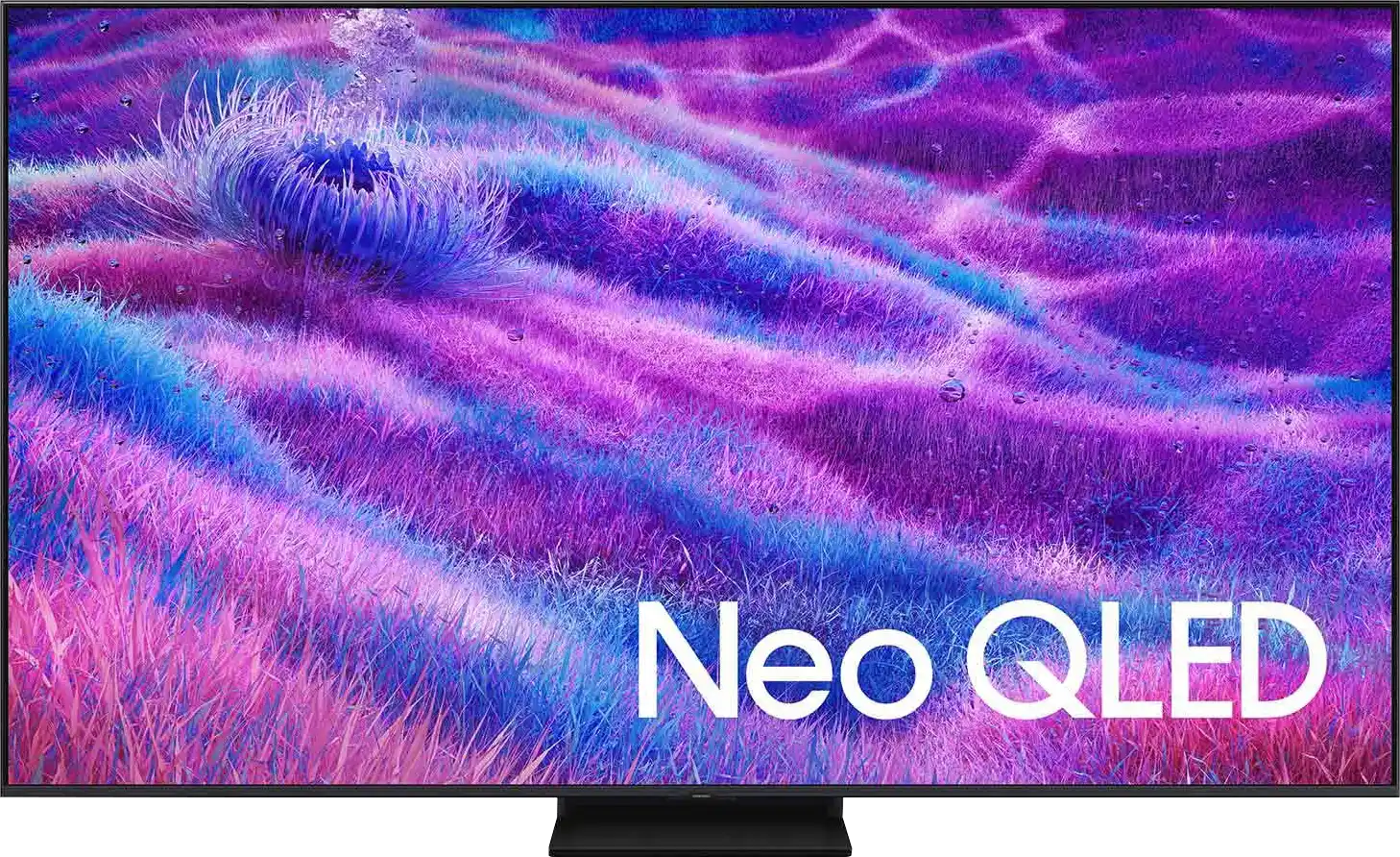
Panel type: LCD VA
Resolution: 3840x2160
System: Google TV
Model year: 2024
Complete the survey to find out the result

Panel type: LCD VA
Resolution: 3840x2160
System: Tizen
Model year: 2025
Complete the survey to find out the result

Overall rating
8.1
7.3
Movies and series in UHD quality
7.7
6.9
Classic TV, YouTube
7.6
6.8
Sports broadcasts (TV and apps)
7.6
6.7
Gaming on console
8.4
8.5
TV as a computer monitor
7.6
8.8
Watching in bright light
8.4
6.6
Utility functions
8.8
7.7
Apps
9.6
8.7
Sound quality
7.8
6.7
Complete the survey to find out what fits your preferences
Advantages
High brightness
Good contrast
Great Dolby Vision support
Google TV – intuitive system, easy access to apps, backlit remote
Very good built-in speakers
Great digital processing
Good for gamers - HDMI 2.1, many features, low input lag
Nice black and contrast - VA matrix combined with MINI-LED backlighting.
Great brightness - up to 1000 nits in HDR
Fast and responsive matrix - 144 Hz
Rich support for gamers - 4xHDMI 2.1, VRR, ALLM, GameBar, Game Motion Plus
Very good usability in daylight
Advanced Tizen operating system
Simple operation
PiP function
Disadvantages
No expansion coating for the viewing angles at this price
Only 2 HDMI 2.1 ports - one of which is ARC
No support for DTS format – limitation when connecting home theater
No USB recording function
Relatively small number of dimming zones
Issues with HGiG function (for gamers) – update removed this option*
Our verdict
QN80F is the first in the history of Samsung's "eighty" series to feature Mini LED backlighting. And it does this really well. Although the number of dimming zones is not overwhelming, the black level is solid, and combined with high brightness, it allows for a very decent picture in HDR content. Additionally, there's a 144 Hz panel that provides excellent motion smoothness, and the set of features for gamers – VRR, ALLM, Game Motion Plus – makes the QN80F a model practically designed for those playing on console or PC. The television operates quickly and responsively, and the Tizen system runs like lightning – whether you're searching for apps or switching sources. Is there anything to criticize? Of course, as always – there are shortcomings in the system (like recording to USB), there’s no DTS support, and Mini LED is not without its limitations. But the QN80F is a great everyday television – versatile, well-thought-out, and... with significant price potential. Looking at the history of this series, we can expect this "eighty" to shake things up once it hits the first reasonable promotions. And it could be virtually unbeatable at its price – especially if Samsung improves the minor teething issues.
TV appearance




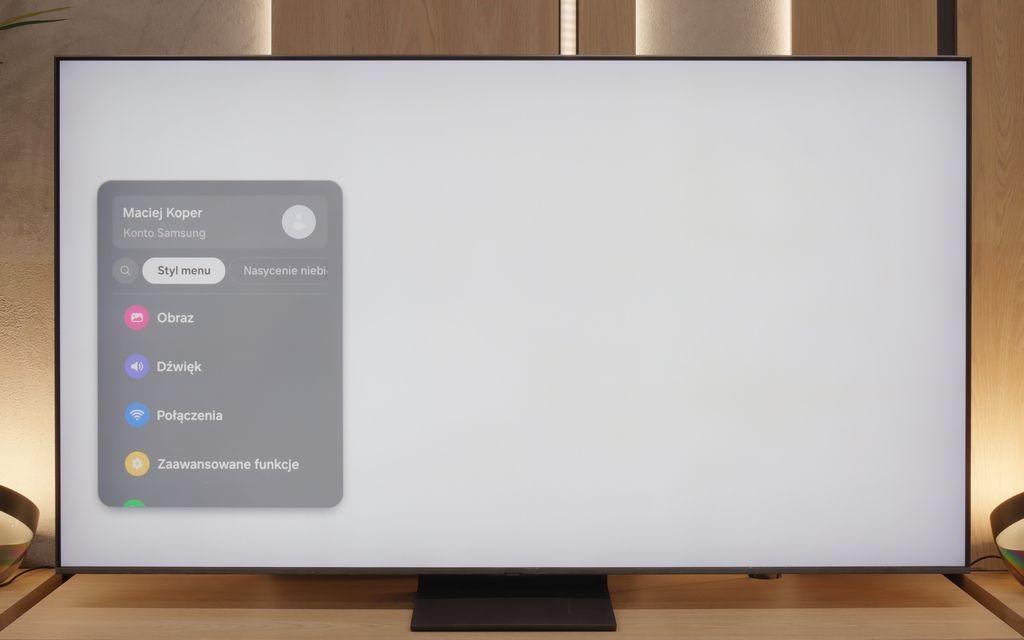
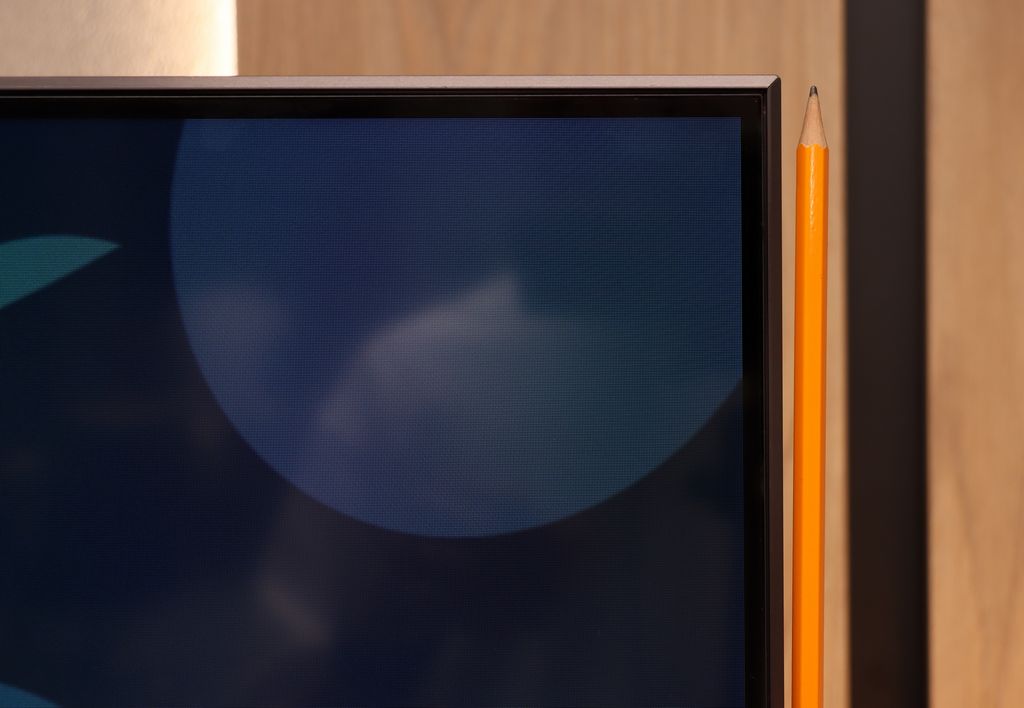
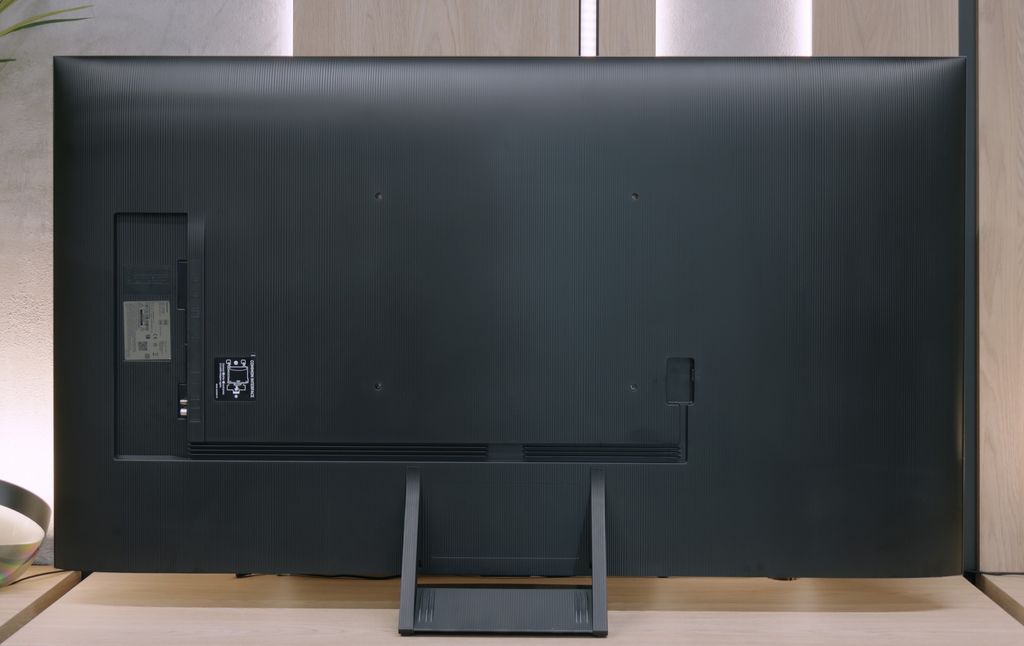
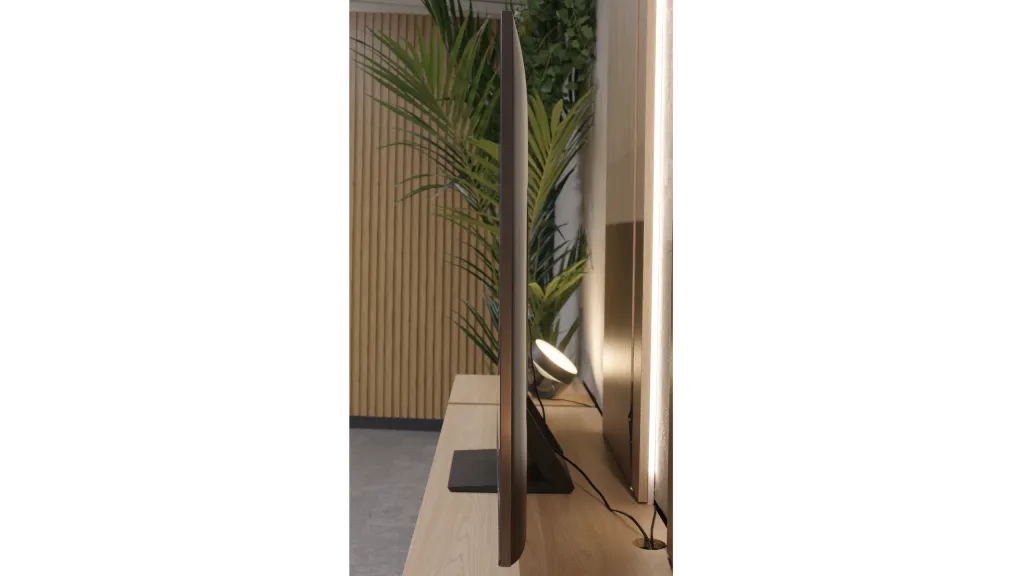
Where to buy
Contrast and black detail
7.7/10
6.8/10
Local dimming function: Yes, number of zones: 512 (32 x 16)
Local dimming function: Yes, number of zones: 88 (8 x 11)
Contrast:
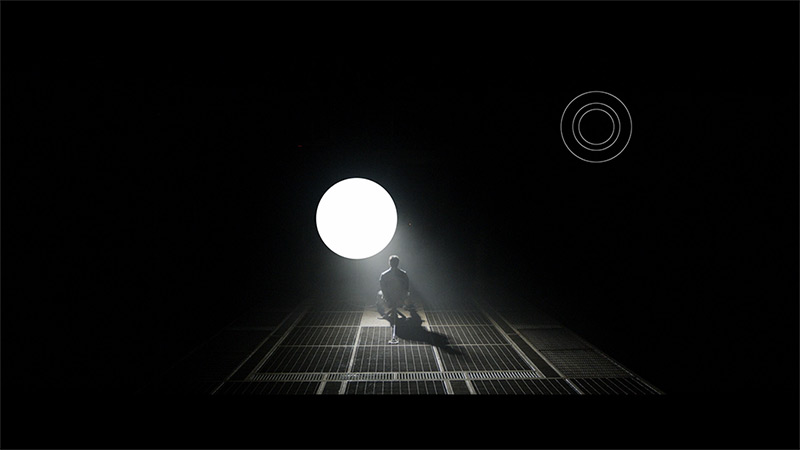
Result
190,000:1
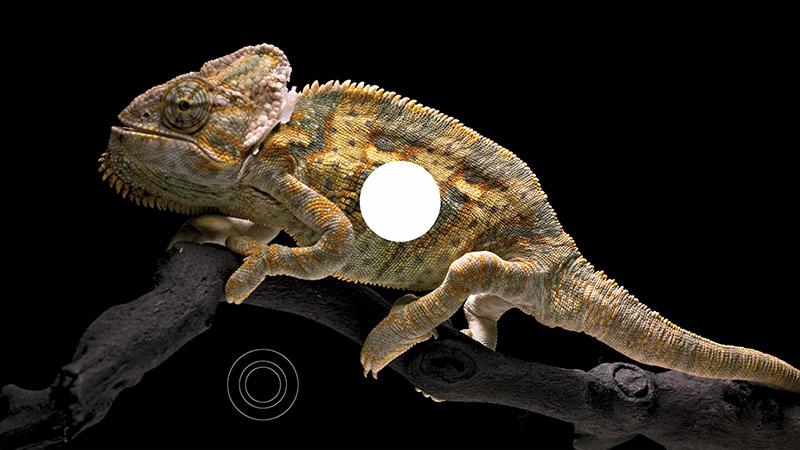
Result
14,700:1
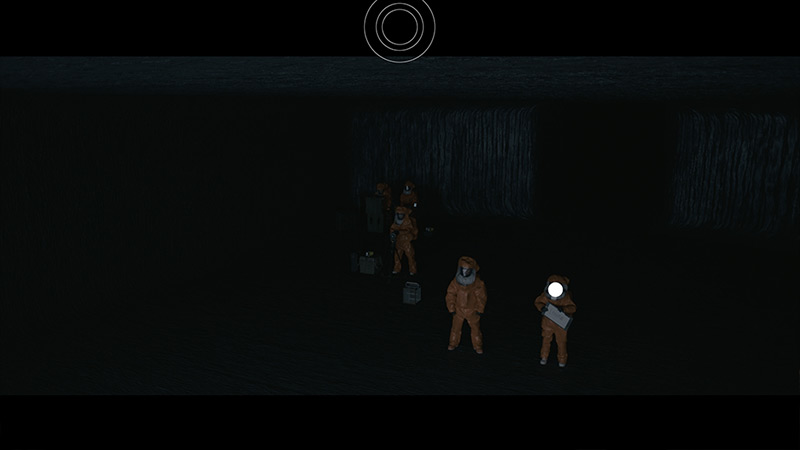
Result
45,000:1
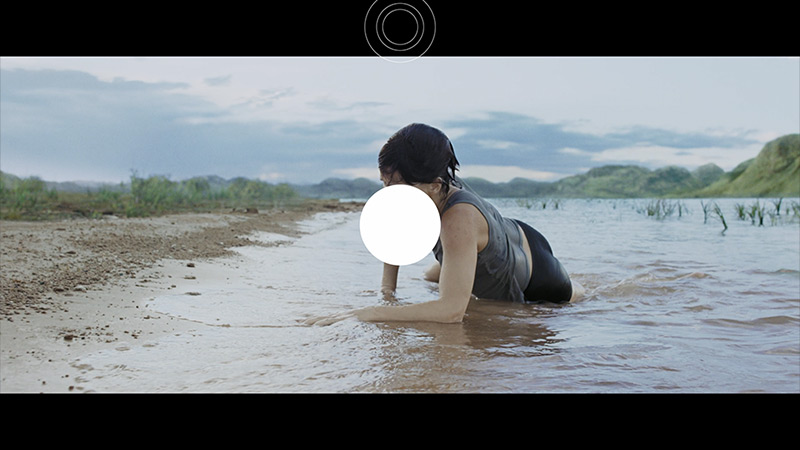
Result
4,400:1
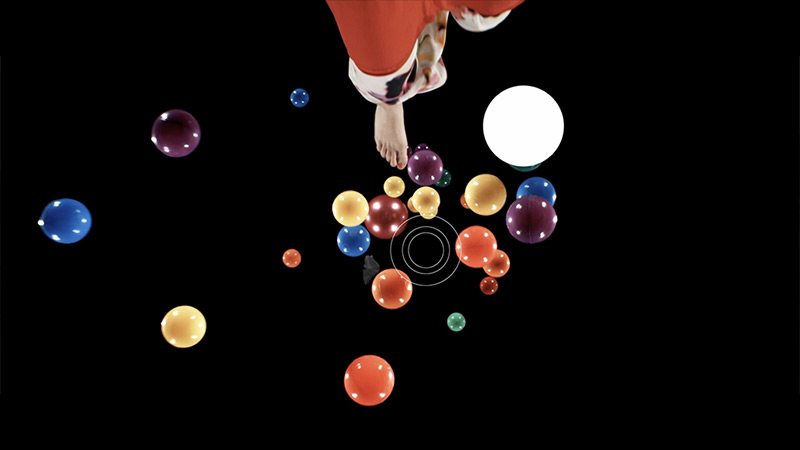
Result
4,800:1

Result
34,100:1

Result
8,200:1

Result
32,500:1

Result
4,550:1

Result
3,800:1
Halo effect and black detail visibility:

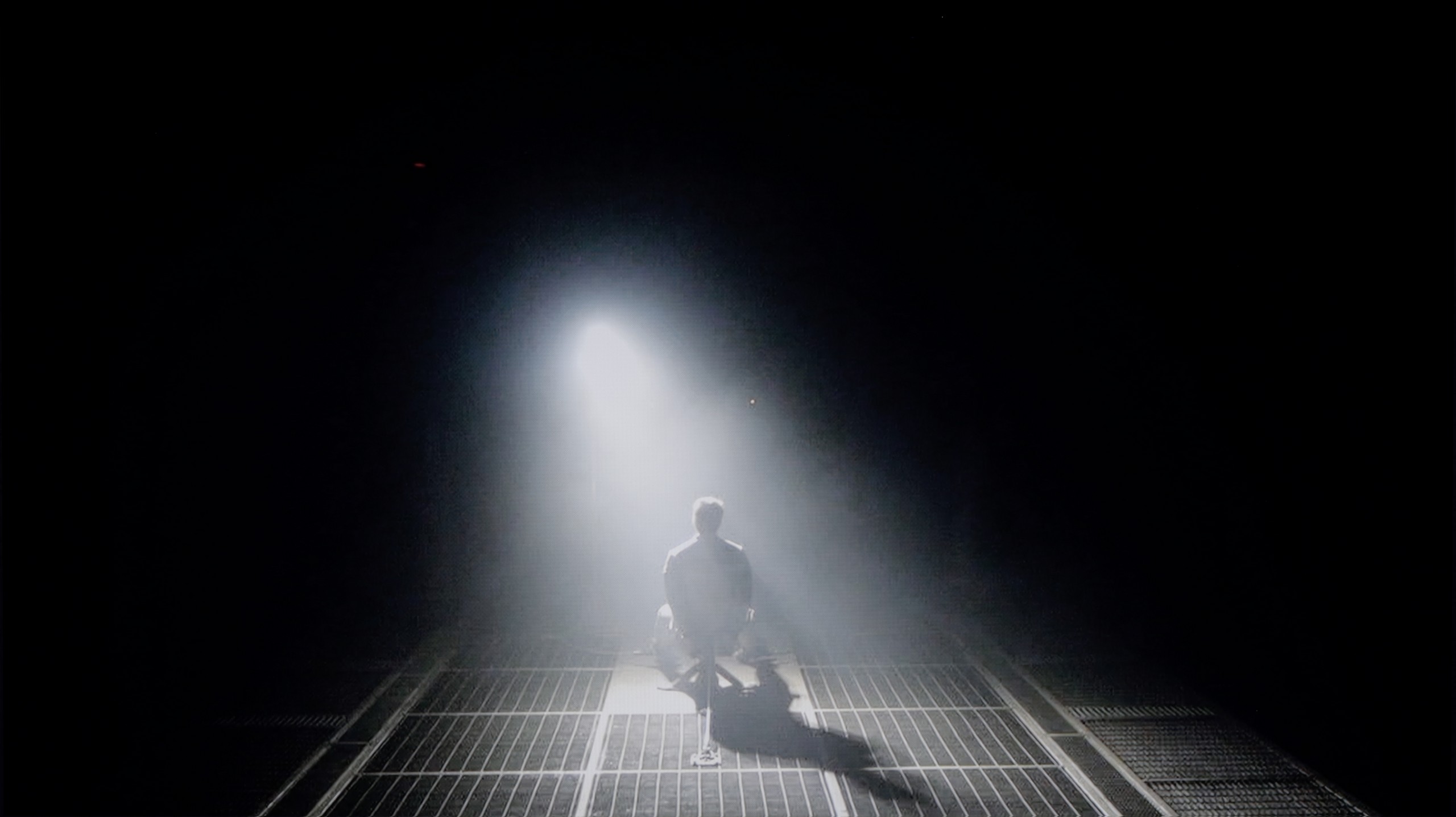
The Sony BRAVIA 7 television with a VA panel and MiniLED backlighting technology offers excellent black levels. The tested 65-inch variant is equipped with 512 dimming zones, which allows for very good contrast, especially in demanding movie scenes. Naturally, larger TV sizes have more zones, which positively affects contrast and image depth. During testing, in scenes from the movie "Oblivion," the BRAVIA 7 managed to depict dark and bright areas excellently, ensuring decent light separation (the light effect did not merge too heavily into one large spot) from deep black. However, as is often the case with televisions that have local dimming features, certain difficulties arise with small bright light elements. In more demanding segments (e.g., scenes 4 and 5), it can be observed that the television "struggles" to maintain high brightness for these elements, which affects contrast – bright objects are either too dark (in which case contrast results are poor) or a slight halo effect appears around them. In the scene from the movie Sicario 2, the influence of the zones is visible, which causes the aforementioned effect, but it is minimal. Despite these minor imperfections, the overall impressions are positive – the local dimming algorithm works really well, ensuring that the image retains high contrast, and the quality of blacks and details is satisfying.
QN80F is a representative of the Neo QLED series, which means it's a television with Mini LED backlighting. Unlike its cheaper cousin, the QN70F model, here the diodes are placed directly behind the panel (rather than at the edges), which gives a solid advantage in contrast control right from the start. In the 65-inch variant we tested, we counted 88 local dimming zones – a result that may not be particularly impressive, but as it turned out, sufficient to achieve quite decent results.
In tests based on scenes from movies like Oblivion and The Meg, the QN80F performed well – blacks were deep, and the overall image consistency was eye-catching. However, in more demanding moments (e.g., scenes with a lot of bright details on a dark background), a halo effect appeared. This is where the limitation of the number of zones shows – bright elements could bleed into each other, and some details in dark areas lost sharpness and contrast. In one of the helicopter scenes (The Meg), we even noticed a slight flicker in brightness, as if the television was trying its best to maintain visibility of details at the expense of black depth.
However, these are not problems exclusive to this model – the halo effect or contrast drops in very complex scenes are something most Mini LED televisions struggle with, even the more expensive ones. In its class, the QN80F still performs positively and offers clearly better contrast than the QN70F model with edge lighting. For most users, this will be a level more than sufficient – though not ideal.
HDR effect quality
7/10
5.8/10
Luminance measurements in HDR:
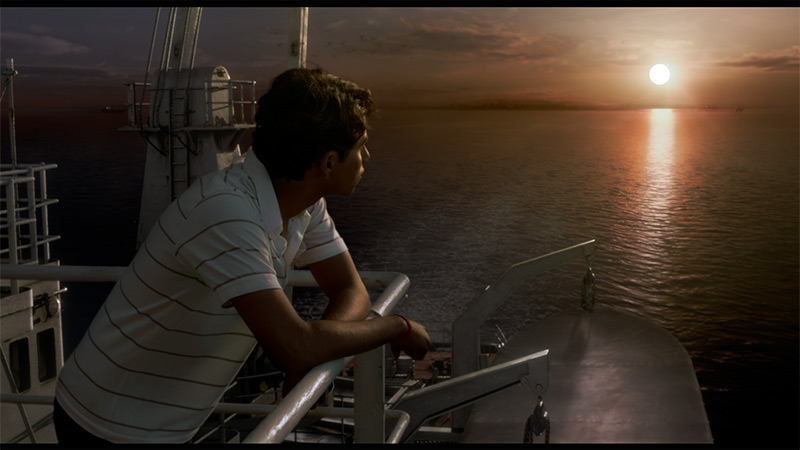
Result
1322 nit
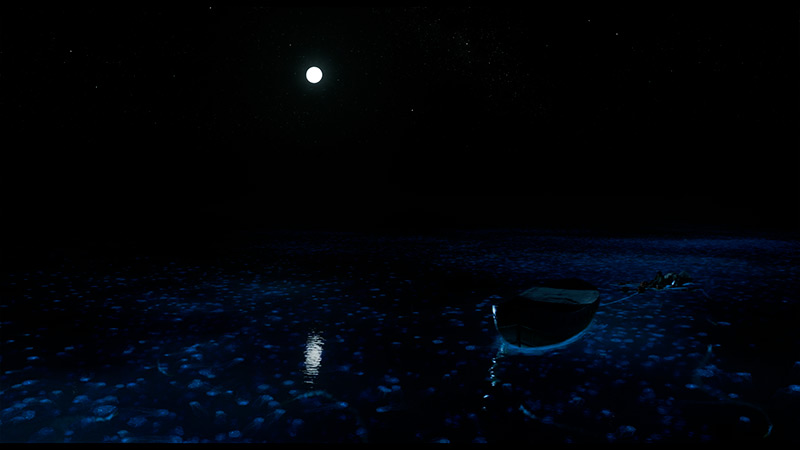
Result
624 nit
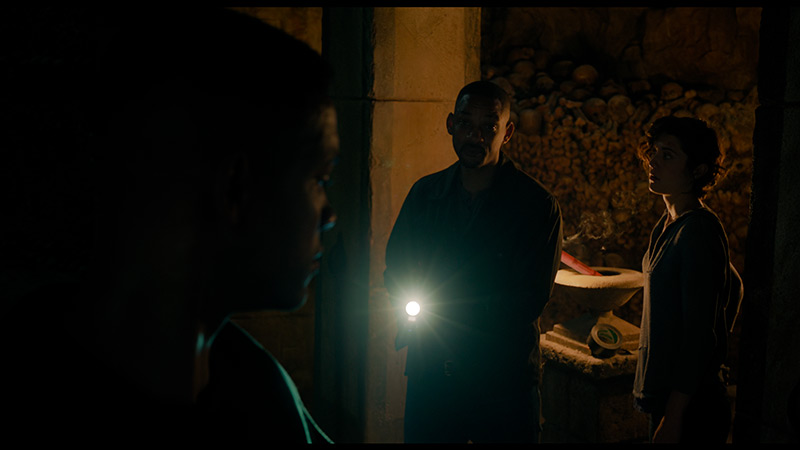
Result
1133 nit
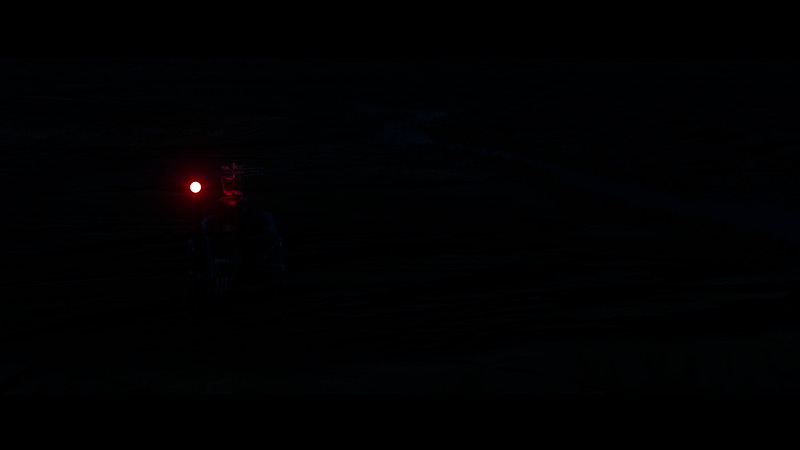
Result
457 nit

Result
989 nit

Result
799 nit

Result
533 nit

Result
717 nit

Result
245 nit

Result
656 nit
Scene from the movie “Pan” (about 2800 nits)

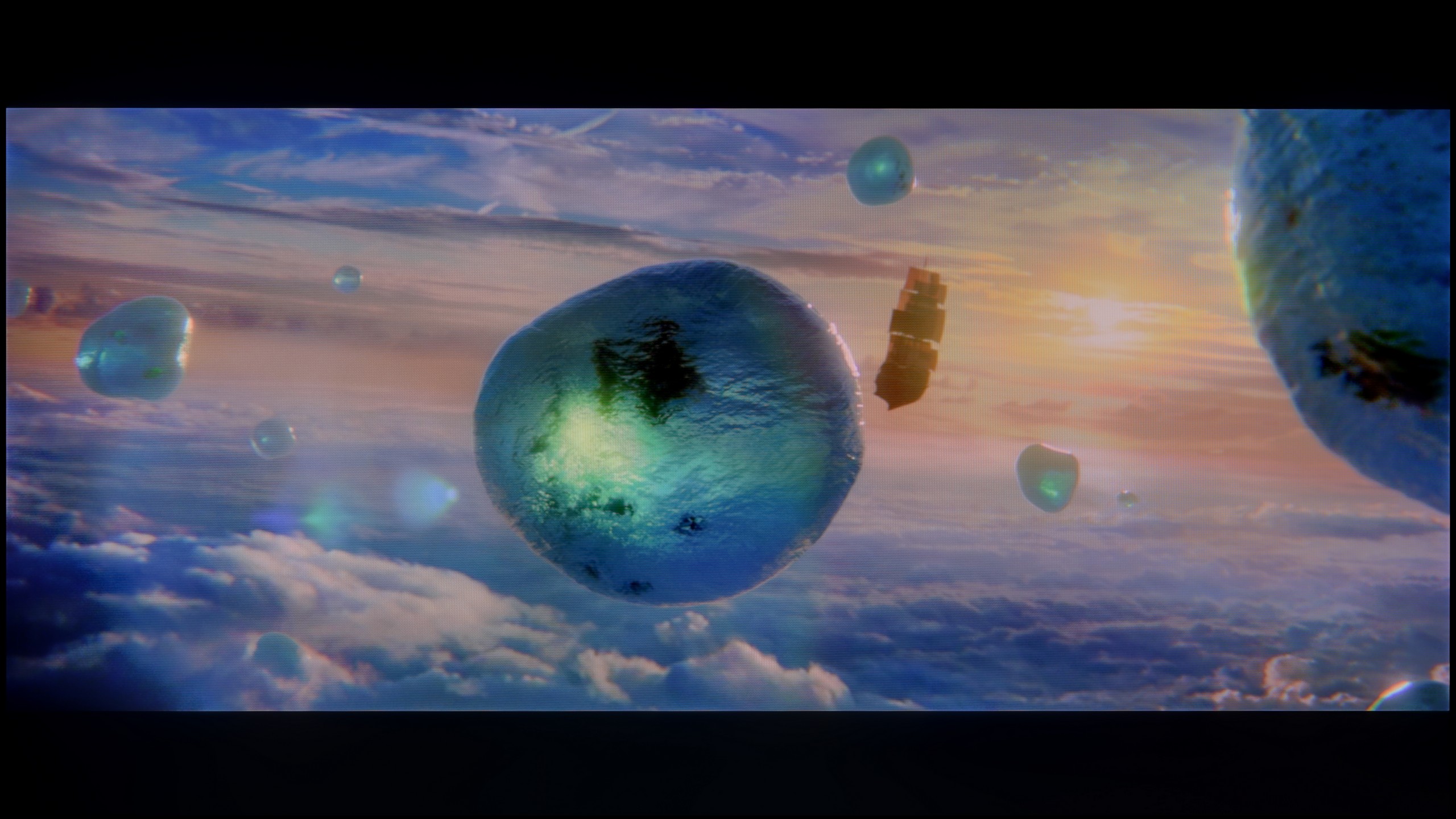
Scene from the movie “Billy Lynn” (about 1100 nits)

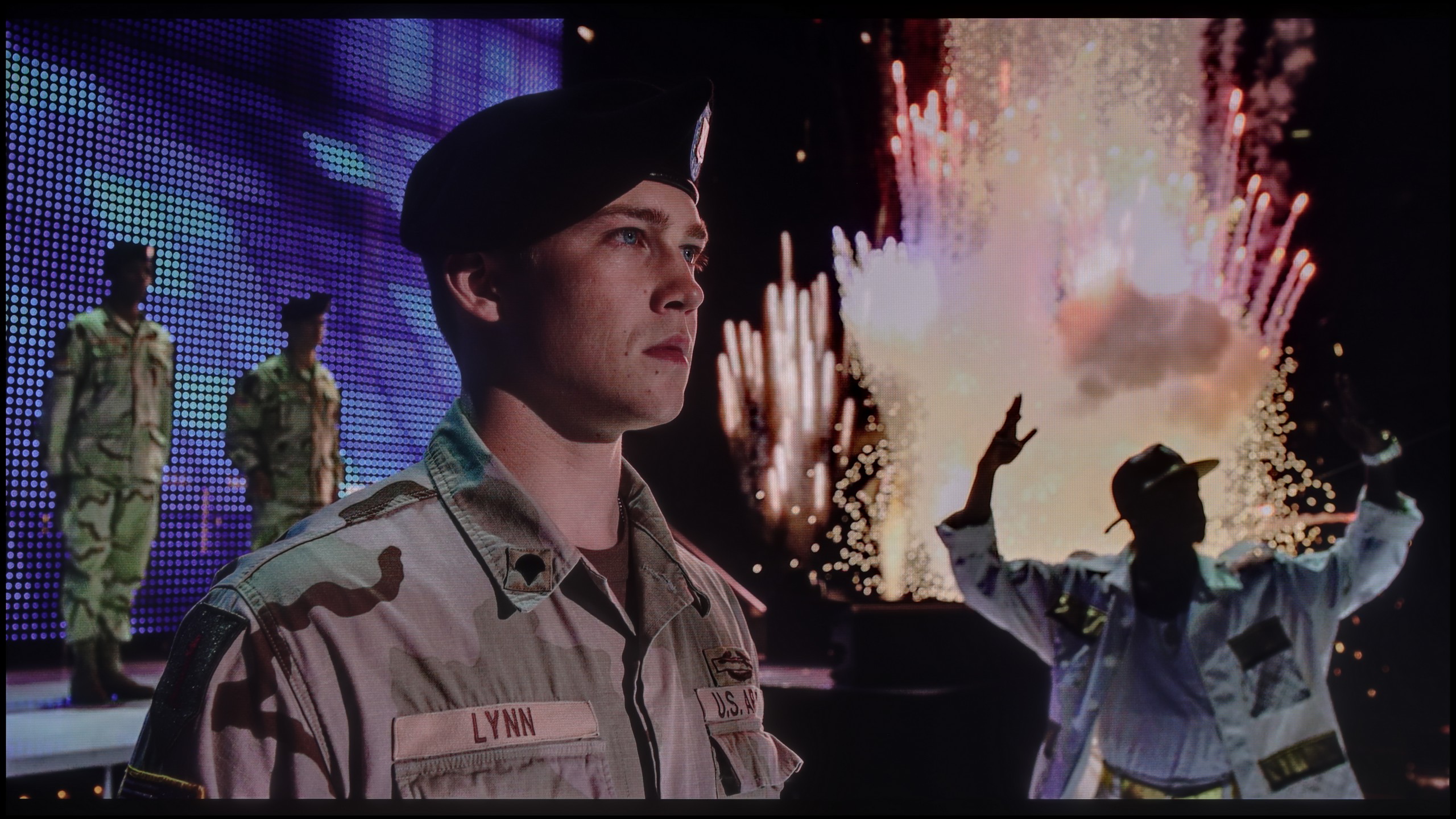
Static HDR10


Dynamic: Dolby Vision
Dynamic: HDR10+


HDR luminance chart:
SAMSUNG QN80F
HDR luminance
Sony Bravia 7 (XR70)
HDR luminance
Since we know that the television performs well with contrast, let's check how it fares in terms of HDR effects. The luminance graph shows the very high capabilities of this model – 1500 nits is truly an impressive result. HDR effects are particularly striking in scenes where most of the screen is covered in light, as seen in the 1st, 3rd, and 5th test scenes. Minor shortcomings, typical of this technology, are still noticeable with very small light effects, such as in the scene from the movie "Sicario 2," where brightness drops to 500 nits. Although these are not stunning results, they can be considered decent. Additionally, it is worth praising the television for its high coverage of a wide color gamut – DCI-P3 at 96%, which allows for vibrant, saturated colors.
QN80F is quite a bright screen – in synthetic tests, it achieved nearly 1000 nits, which allows for reasonable expectations with HDR content. And indeed, in many scenes, the television truly shines. Sequences with a lot of light – such as shots from the movie Life of Pi or wide, bright surfaces in The Meg – look spectacular. Brightness maintains around 700 nits, which provides a solid effect, sufficient to feel the true "HDR magic." Unfortunately, not every scene looks that good. In materials with small, bright details on a dark background, like in Sicario 2, the television has problems – it can dim certain elements significantly, sometimes to the point where they disappear from the image. This is the result of a limited number of dimming zones, which forces the device to make compromises: either stick to inky blacks or sacrifice some details. QN80F usually chooses the former. As a consolation, it has quite decent coverage of a wide color gamut – DCI-P3 at 93%. This is not the highest score on the market, but it is more than enough for most content on streaming platforms.
Factory color reproduction
6.7/10
6/10


Factory Mode
After calibration


Factory Mode
After calibration
The IMAX Enhanced mode on the Sony BRAVIA 7 television is definitely the best mode available on this model, although it is not without its flaws, as its name might suggest. The biggest issue is white balance – both in HD and 4K HDR content, there is a noticeable dominance of red color, which makes the image take on pinkish shades. This is particularly evident on the tested snow screen, where the pinkish hue becomes very noticeable. Errors in the Colour Checker test also confirm these deviations – although they are not catastrophic, there is a tendency to lean towards warmer tones. As for brightness characteristics, gamma remains at a decent level with a slight bump but without major issues. However, the biggest challenge is 4K materials. It is clear that the EOTF curve is significantly above the reference chart, which causes the image to become too bright.
We always test televisions in the best available factory mode – for the Samsung QN80F, this is the Filmmaker mode, and indeed, it offers the settings closest to the creators' intentions. However, this doesn't mean that everything looks perfect. In SDR content, the biggest issue turned out to be an unbalanced white balance – slight deficiencies in green and a noticeable excess of red led to noticeable color errors, and one could almost say there was a pinkish tint to the screen. This was clearly visible in the color checker test, where colors would "escape" their target fields – to the extent that a sensitive viewer's eye could catch it even without the help of a meter.
In HDR content, the white balance was much better, but another problem emerged – brightness management. The EOTF curve caused an overly bright image most of the time, which could affect the perception of contrast and made the screen slightly "flicker" during dynamic light changes. We have already discussed this in the paragraphs about black and HDR. Fortunately, Samsung leaves the user with plenty of options. The QN80F offers a rich set of calibration options, including a 20-point white balance – that's why we decided to check what this television is really capable of after proper calibration.
Color reproduction after calibration
9.1/10
8.3/10

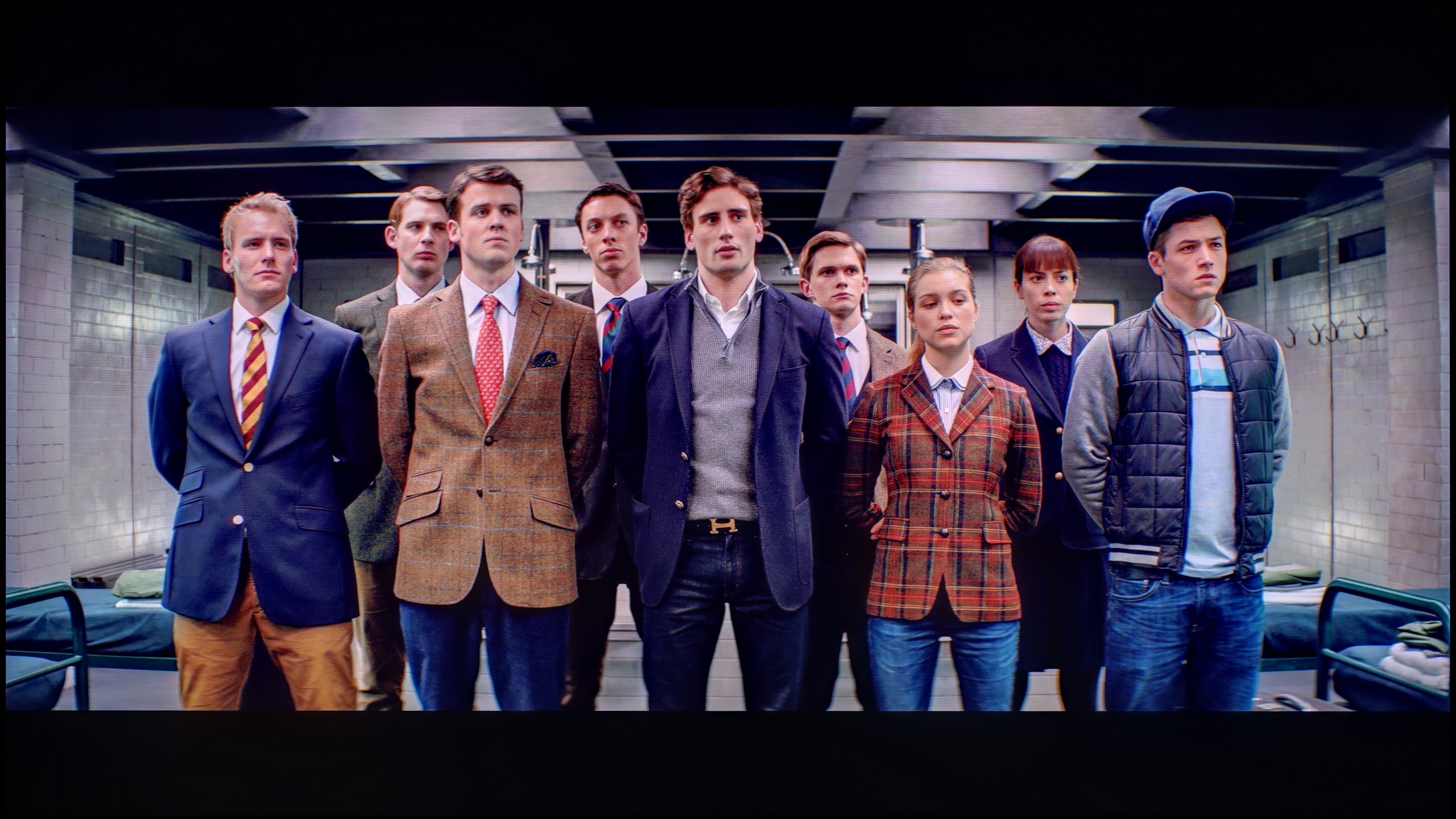

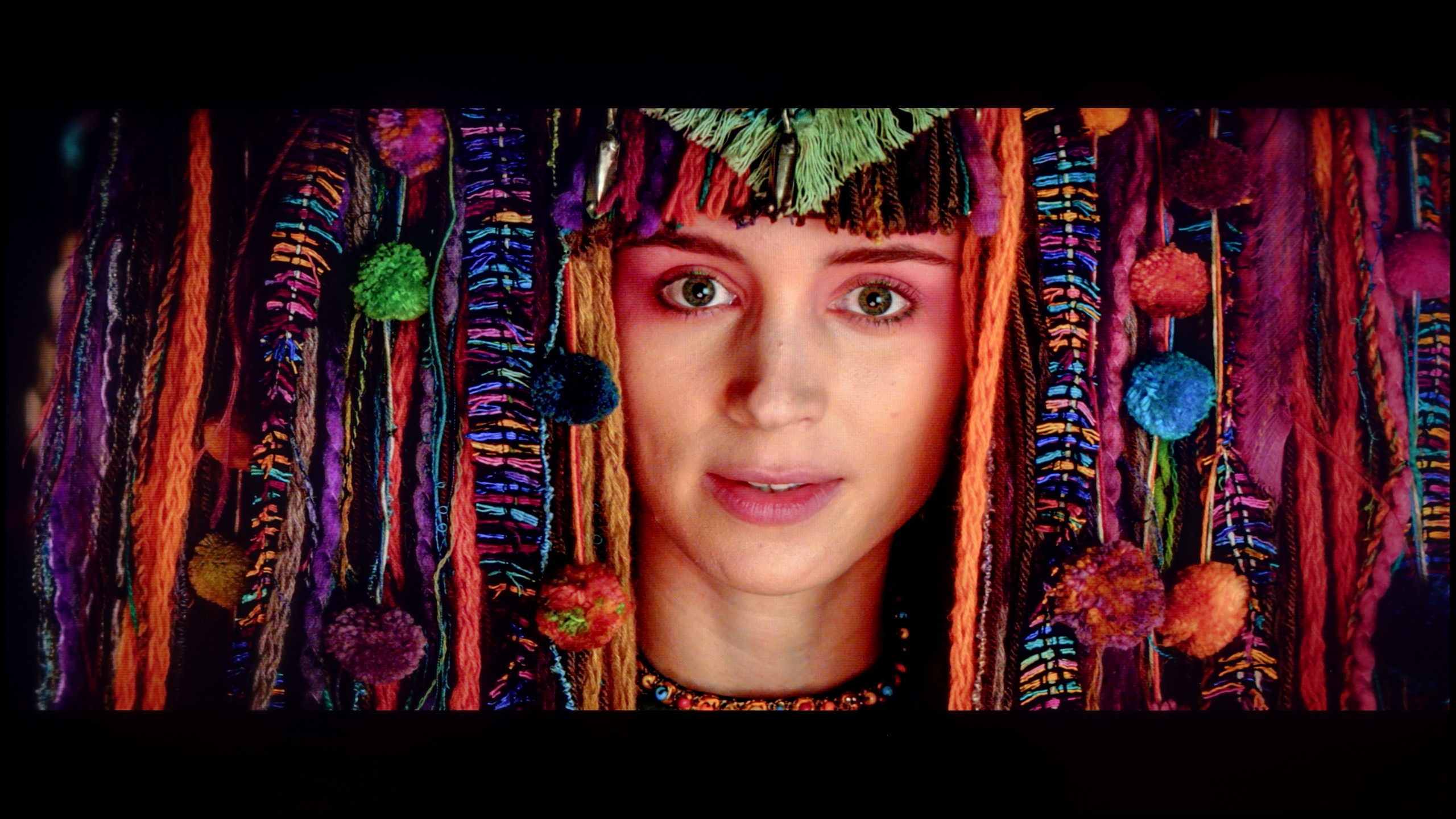
Sony BRAVIA XR70 offers a wide range of tools that allow for customizing the picture to personal preferences, which has enabled us to make significant adjustments to the settings. The white balance has been free of the issue of red hue dominance – snow no longer ends up with pink shades, which was previously noticeable. Although one can detect minor deviations at the end of the white balance chart concerning a drop in blue color, they are acceptable and hard to notice in everyday use. The Colour Checker test confirms that color reproduction errors are no longer as pronounced and rarely exceed a value of 2, which is a very good result. As for brightness, gamma, while not requiring significant improvement, has been slightly adjusted. However, the most notable change has been observed in the EOTF curve – the television no longer has issues with overly brightening the entire image in 4K content. However, upon closer analysis and enabling EOTF characteristics in films, certain limitations of the television arise due to the previously discussed dimming algorithm. Some small elements may be slightly more illuminated, but these errors are so minor that most users will not notice them. Overall, the calibration results are very, very positive.
After conducting a thorough calibration, it was possible to bring most image parameters to a really good level. The white balance in both SDR and HDR appears nearly perfect – the image is natural, neutral, and free of the previously noticeable reddening. The colors have gained depth, and the overall visual reception has become more pleasant and cohesive. It was also possible to partially master brightness management, which in the factory version could be problematic. The EOTF chart shows that the television performs significantly better with brightness after calibration – there's no longer excessive dimming of certain elements. In films, it can still be observed that the QN80F has a tendency to slightly brighten the smallest, bright details – this is already a result of the device's construction and the limited number of dimming zones. In short: not everything can be overcome, but what could be improved has been addressed. After calibration, the QN80F makes a really good impression; it simply looks more mature and professional.
Smoothness of tonal transitions
9/10
9/10

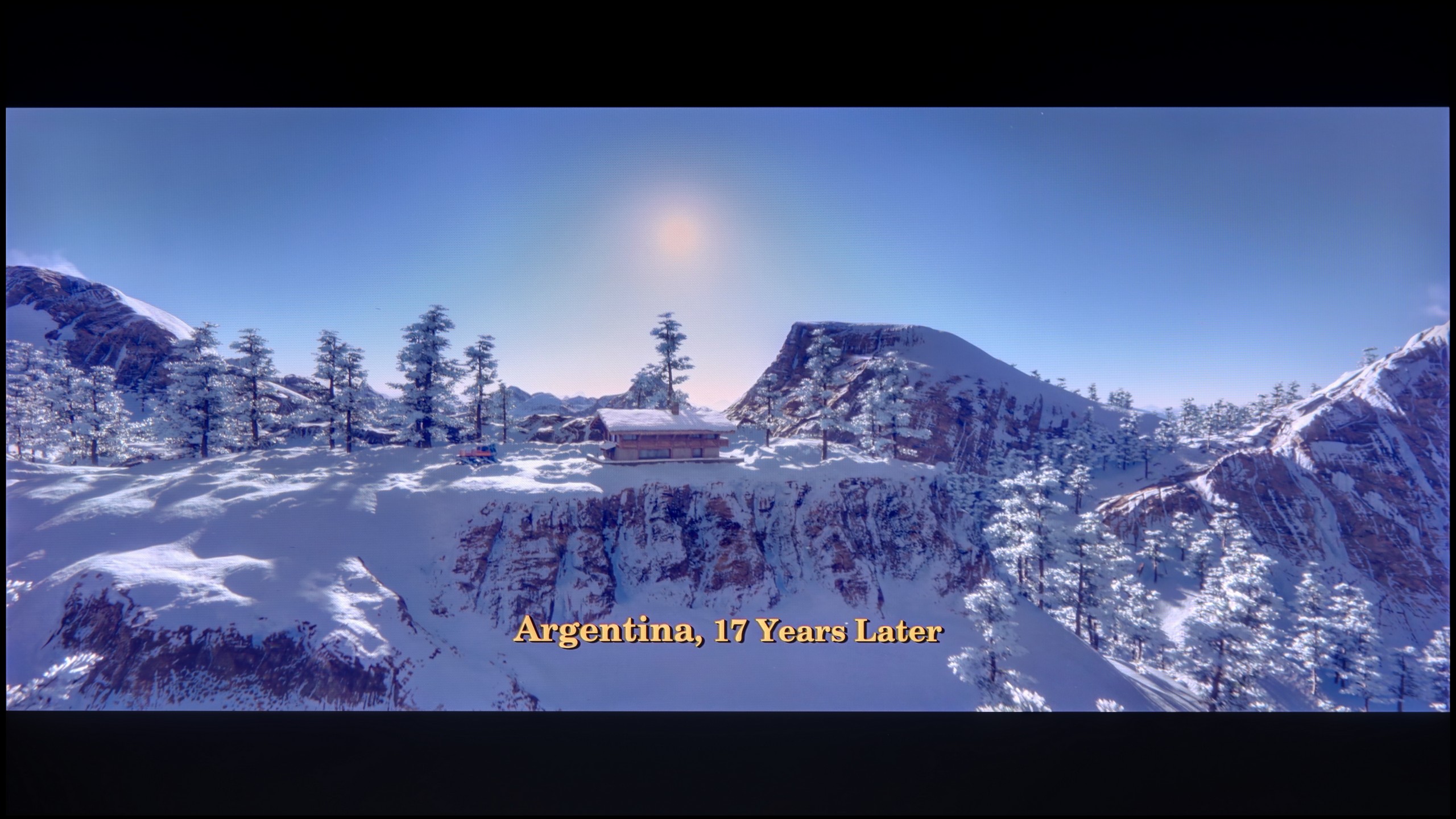

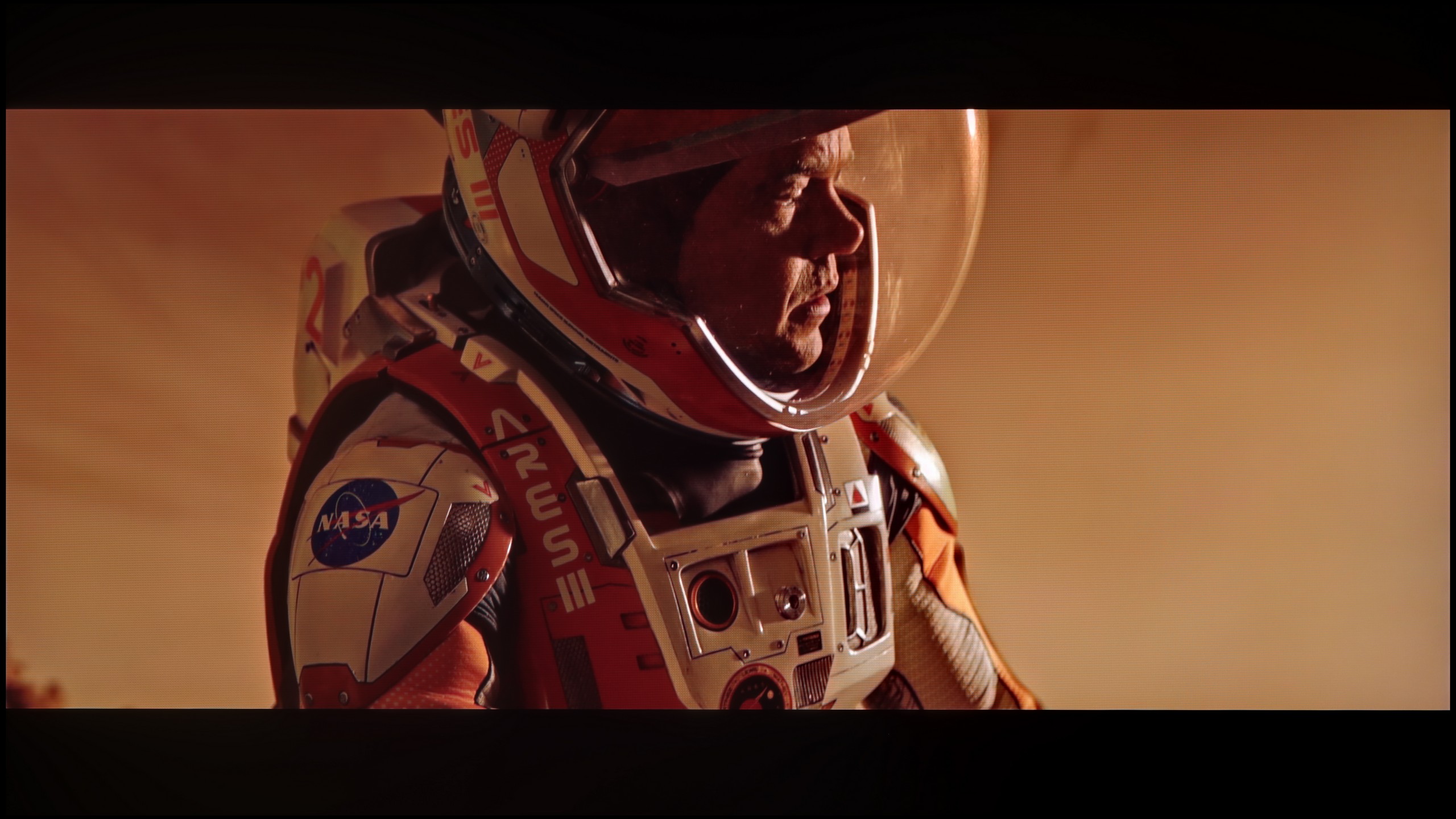

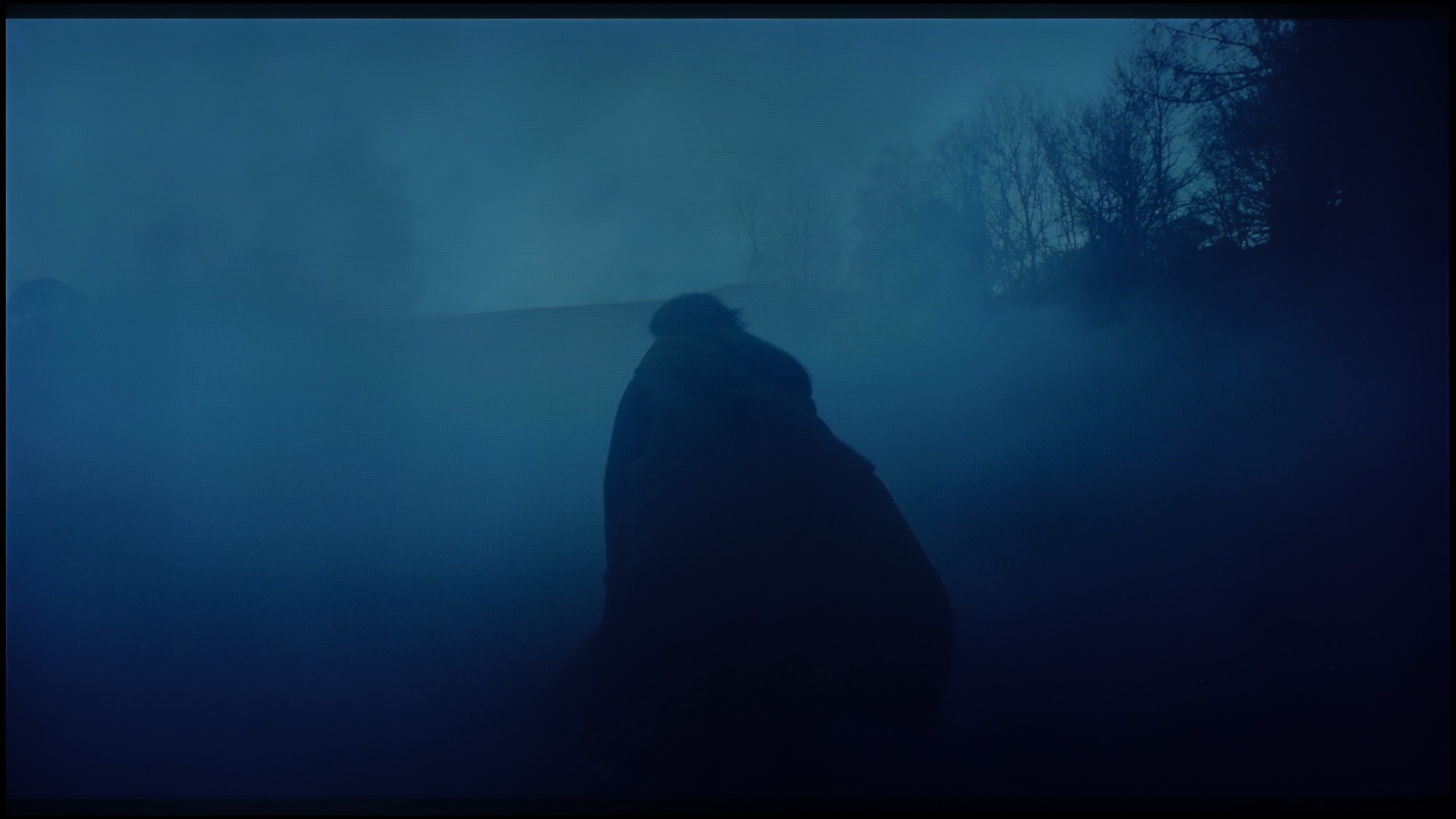

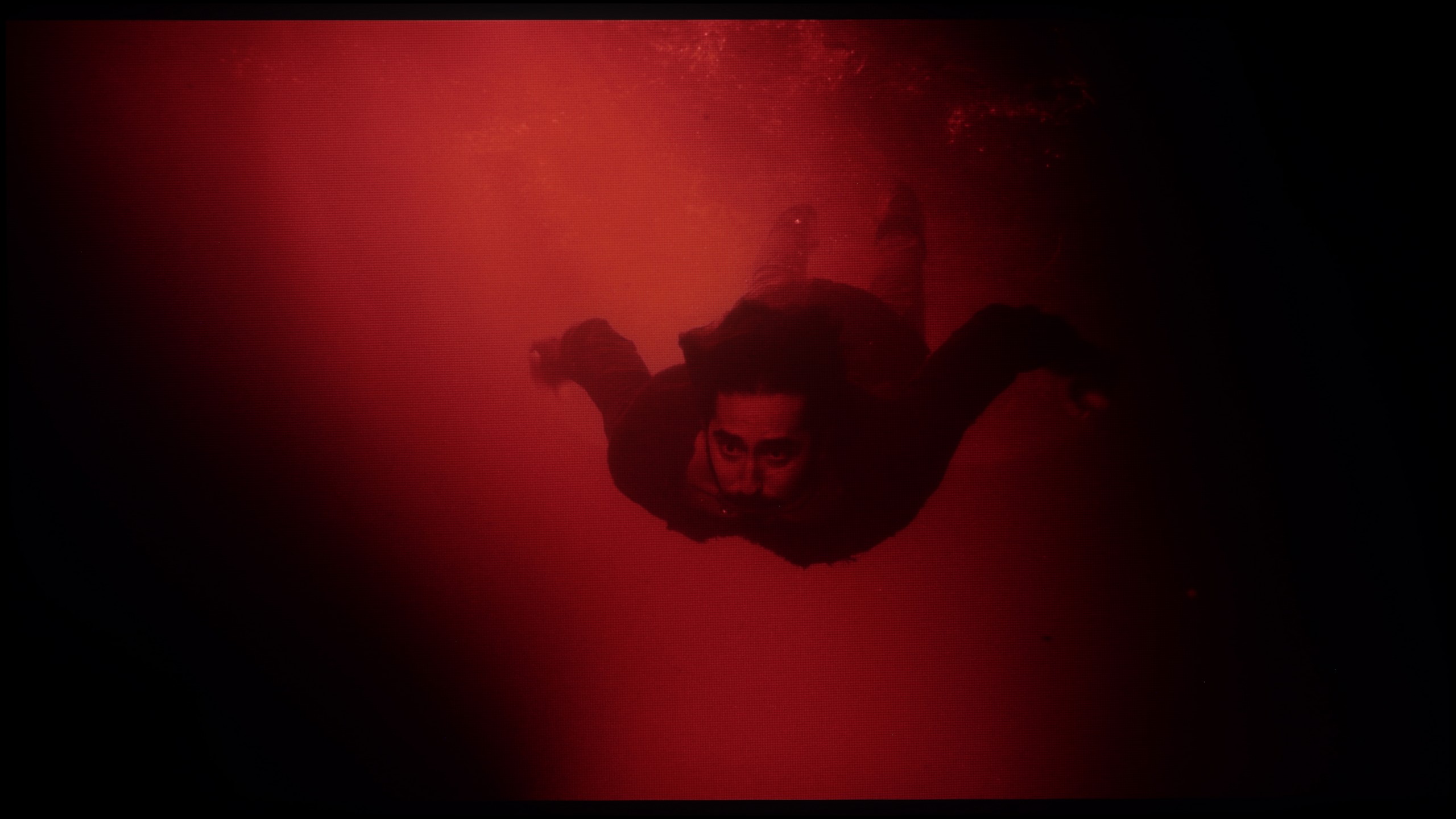




The Sony XR70 TV handles gradation excellently. In the test sequence, only a few scenes show slight issues with tonal transitions in dark areas, however, most of these problems disappear when the gentle gradation option is turned on. Overall, the TV offers great gradation that will satisfy even the most demanding users.
In this regard, the QN80F really delivers. The transitions between colors are smooth, nothing is choppy, and there are no annoying bands in the sky or strange blotches in the shadows. Movie scenes in darker tones performed particularly well – and that's where most televisions start to struggle. If one really looks for it, slight banding can be seen in the brightest areas, but that's really just nitpicking. In everyday viewing, no one should have a problem with this. To put it simply: the tonal transitions are so good that you can forget about them – and just enjoy the movie.
Image scaling and smoothness of tonal transitions
8.5/10
7/10
Smooth transition function

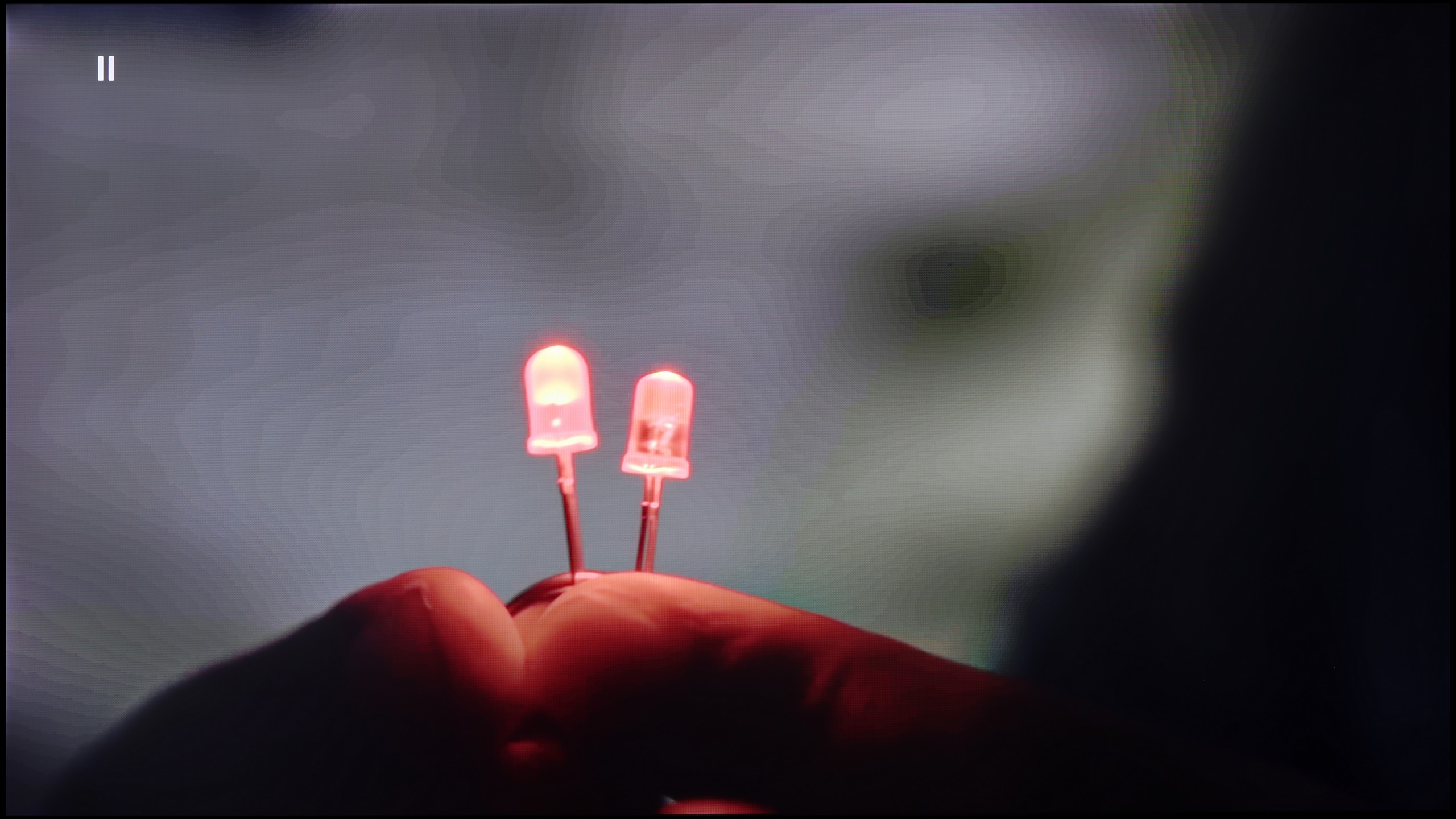
Image without overscan on the SD signal

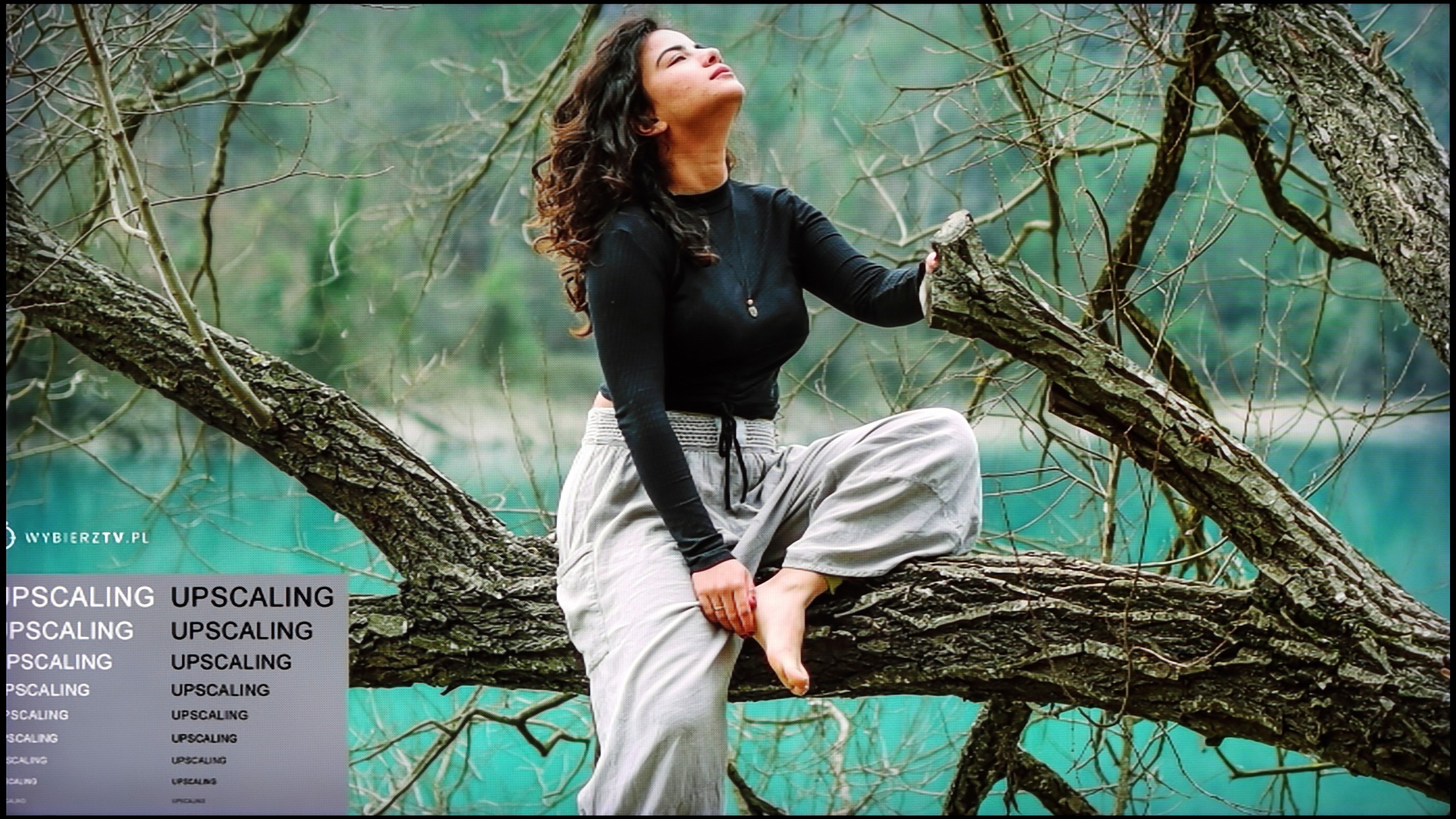
Since we know that the television performs very well with high-quality materials, it is worth checking how it fares with lower-quality content. Here the television shows its potential, and the applied graphics processor works really well. On the test board with the light bulb, there are no visible issues with color transitions, and the smooth gradation function works very well – we recommend setting it to "Medium".
When it comes to digital processing, or so-called upscaling, the television sharpens the image quite a bit, which leads to slight aliasing, for example on branches in the background, but it does not remove desired details. Nonetheless, the overall appearance is truly attractive and may appeal to most users. However, if we prefer a softer, more plastic image, this effect can be reduced in the settings by adjusting the sharpening level to our personal preferences.
If, while watching lower-quality materials – for example from YouTube – we notice strange color transitions or unwanted artifacts, it’s worth checking the settings and enabling the noise reduction function. In our opinion, the best setting is at the "medium" level – it effectively smooths out problematic color transitions while not excessively blurring the entire image. However, one must know this: this option tends to remove film grain. If someone cares about preserving this effect (e.g., in older films), it’s better to just turn it off – regardless of the level, the grain always disappears.
When it comes to scaling resolution (i.e., the so-called upscaling), Samsung – as always – performs very well in this area. The QN80F may not compare to the top models worth several thousand, but for its price class, it really performs impressively. Very low-quality materials (e.g., from SD television or older video files) are noticeably improved and look surprisingly decent. The only noticeable drawback is the typical Samsung issue with overscan – that is, slightly cropping the edges of the image at very low resolutions, e.g., 576p.
Blur and motion smoothness
8.3/10
7.5/10

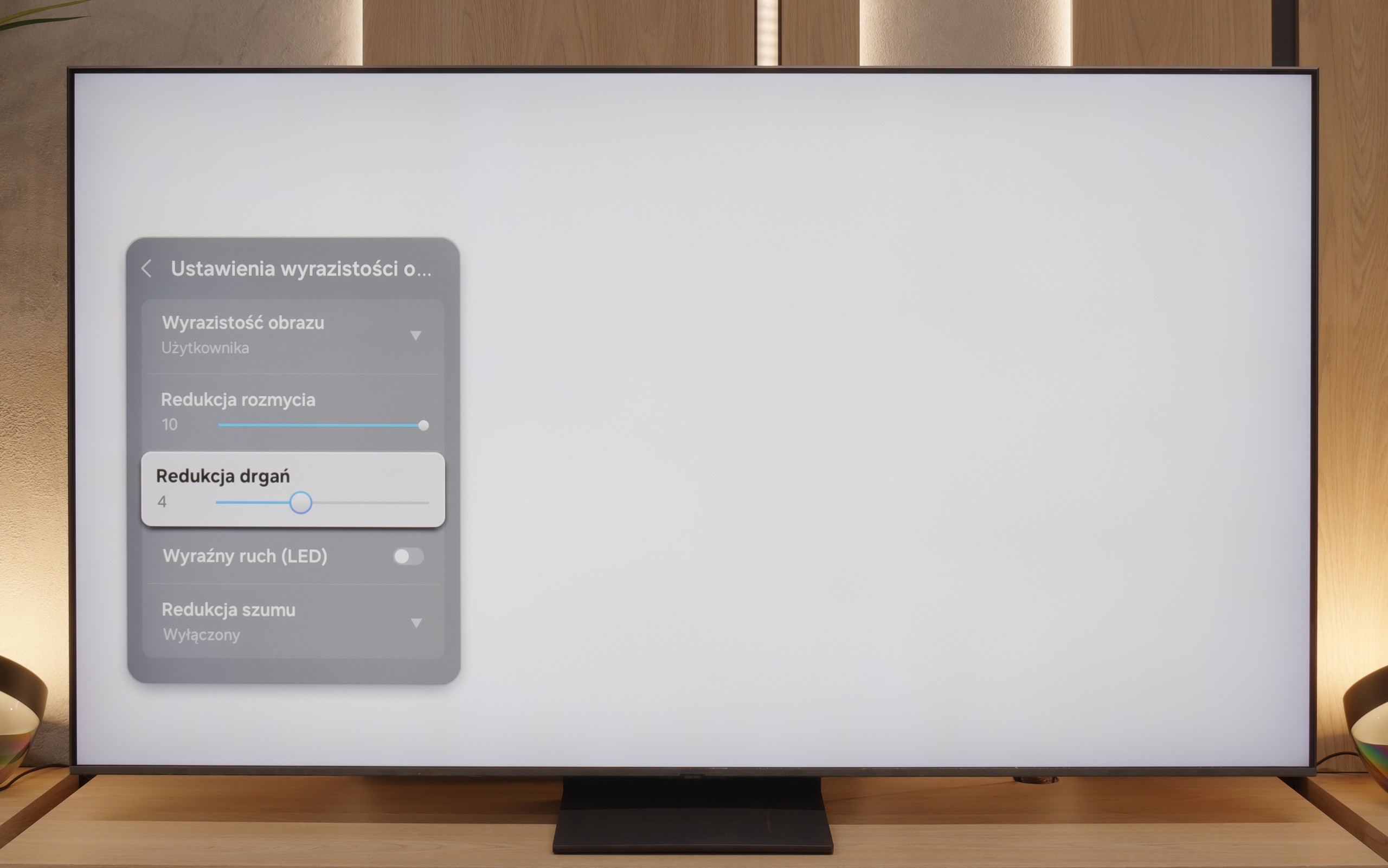
Blur (native resolution, maximum refresh rate):



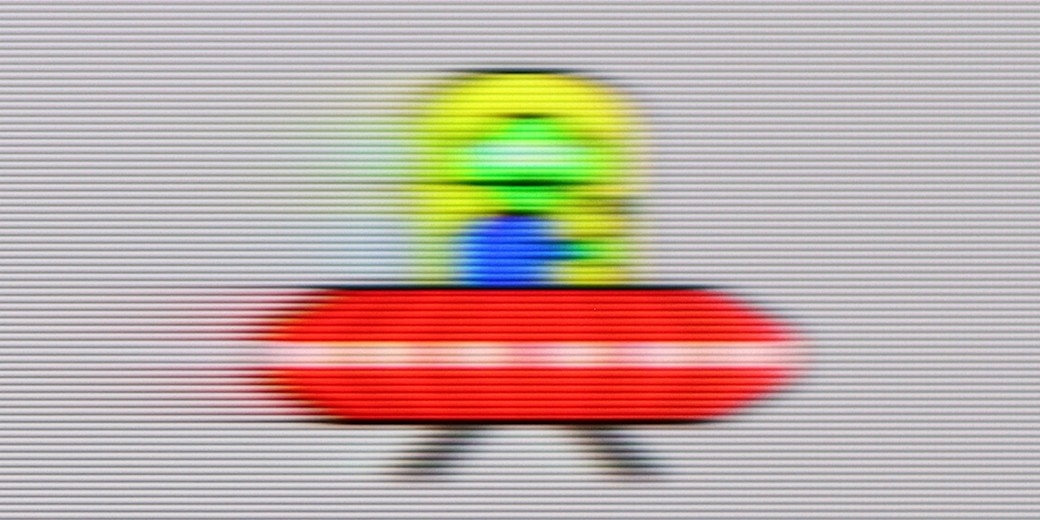
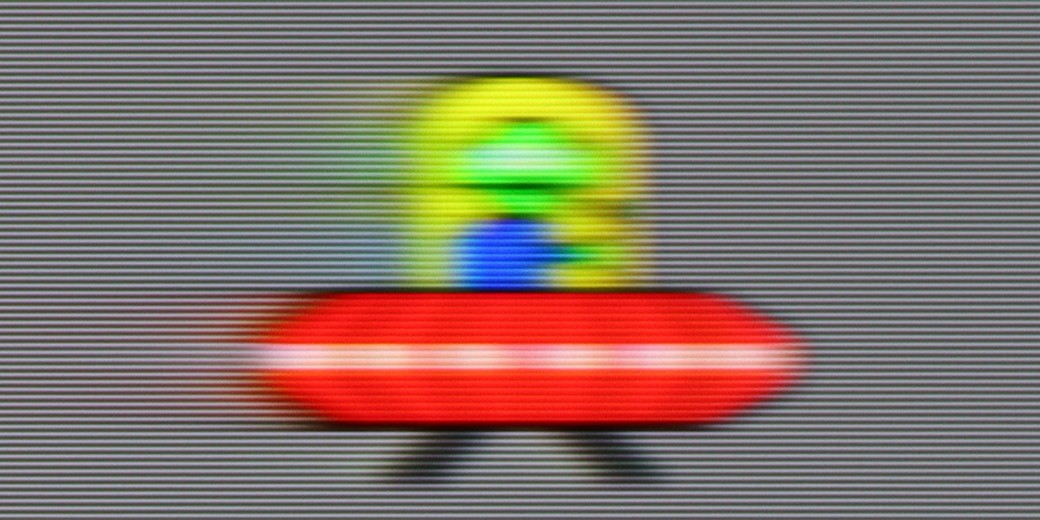
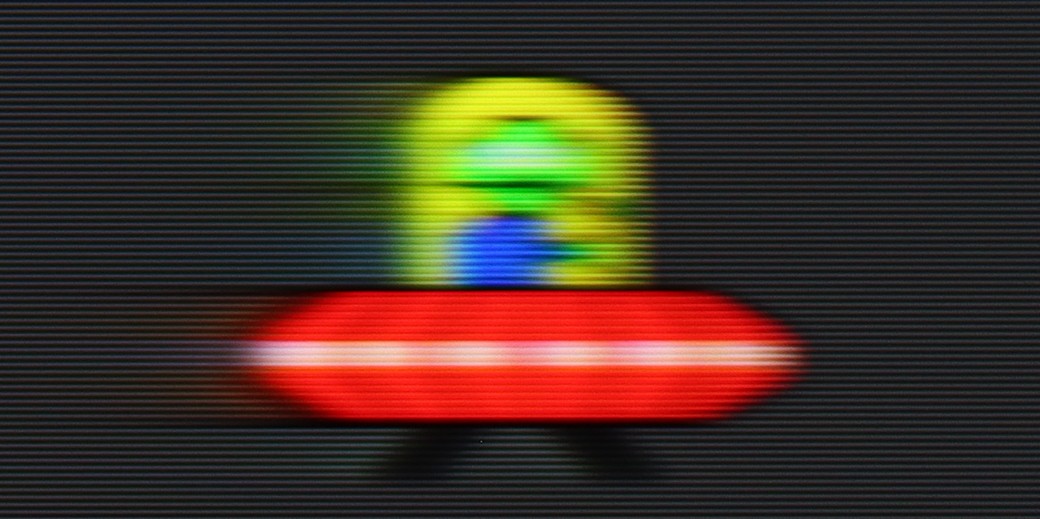
Blur (BFI function enabled):



Image flickers in this mode
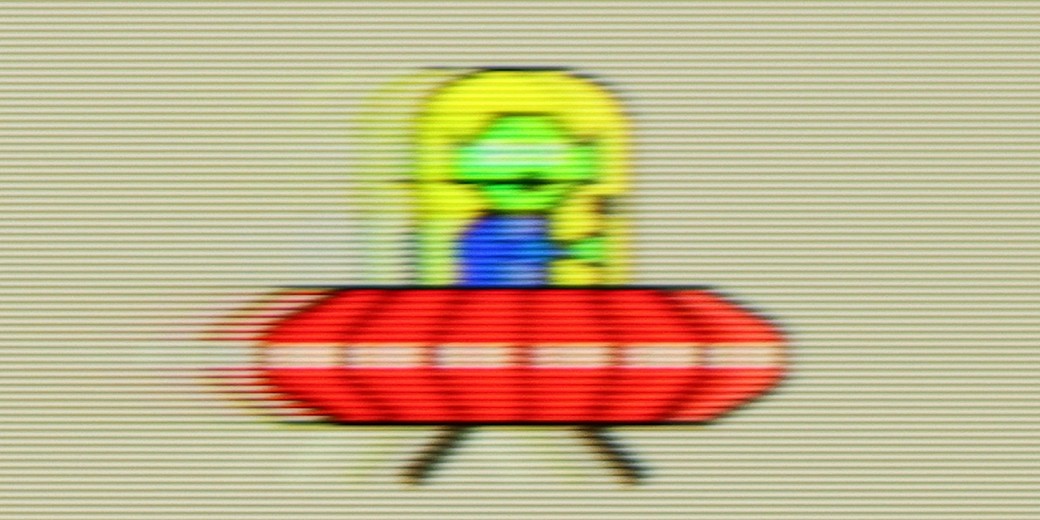
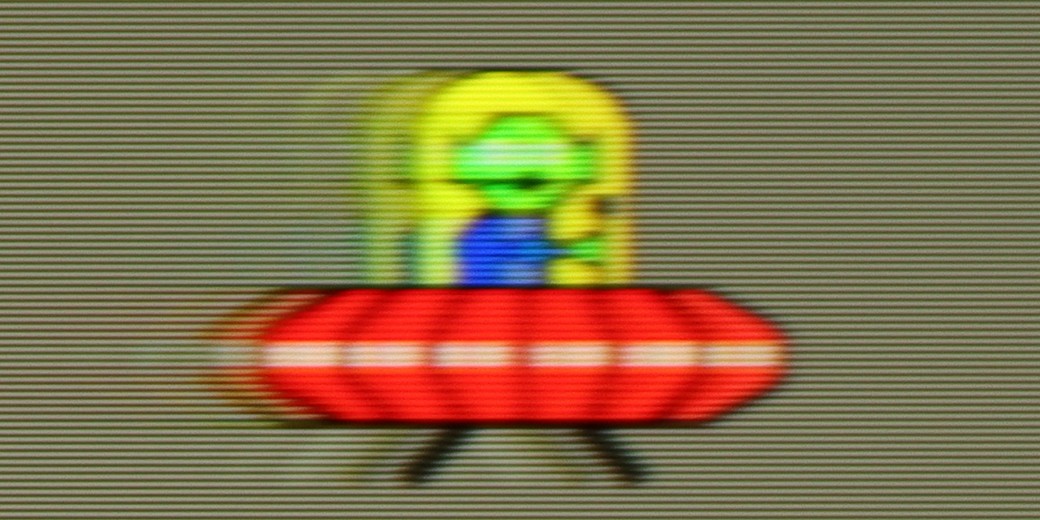
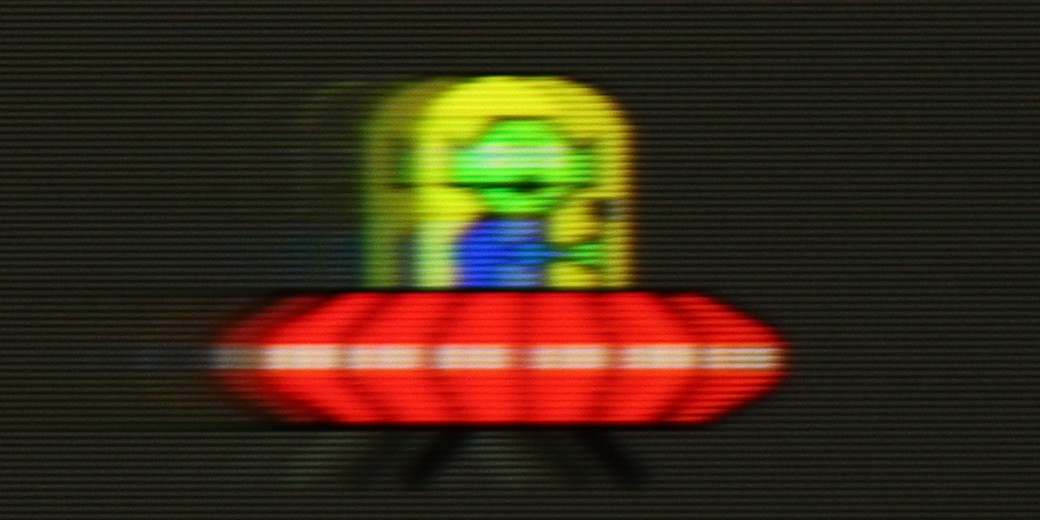
The Sony BRAVIA 7 television with a 120 Hz panel will satisfy most users in terms of motion smoothness. Additionally, Sony offers the Motion Flow feature, which allows for the selection of three different picture settings, adjusting them to personal preferences: Smoothness – Film: This setting improves motion smoothness, giving the image a more cinematic or theatrical character. Smoothness – Camera: This setting provides even greater smoothness, useful when watching dynamic scenes such as sports broadcasts. Clarity: This setting focuses on minimizing noise and motion artifacts, resulting in a more stable and clear image.
QN80F is truly a "fast" television. The applied panel offers a refresh rate of up to 144 Hz, which in practice means that the screen keeps up with the action – whether we're watching a movie, playing games, or browsing dynamic content on the internet. The image doesn't tear, it doesn't excessively blur, and everything simply looks smooth and pleasant to the eye. Of course, the manufacturer hasn't forgotten about movie fans – in the settings, we find an option for motion smoothness adjustment, allowing us to tailor the effect to our personal preferences. You can leave a more "cinematic" look (for those who enjoy a classic film vibe) or crank up the smoothness to a higher level for a theatrical smoothing effect. Importantly, the choice is ours. Watching movies and playing on the QN80F is simply a joy.
Console compatibility and gaming features
8.1/10
8.2/10
- ALLM
- VRR
- VRR range48 - 120Hz48 - 144Hz
- Dolby Vision Game Mode
- Correct implementation of HGIG
- 1080p@120Hz
- 1440p@120Hz
- 4K@120Hz
- Game bar

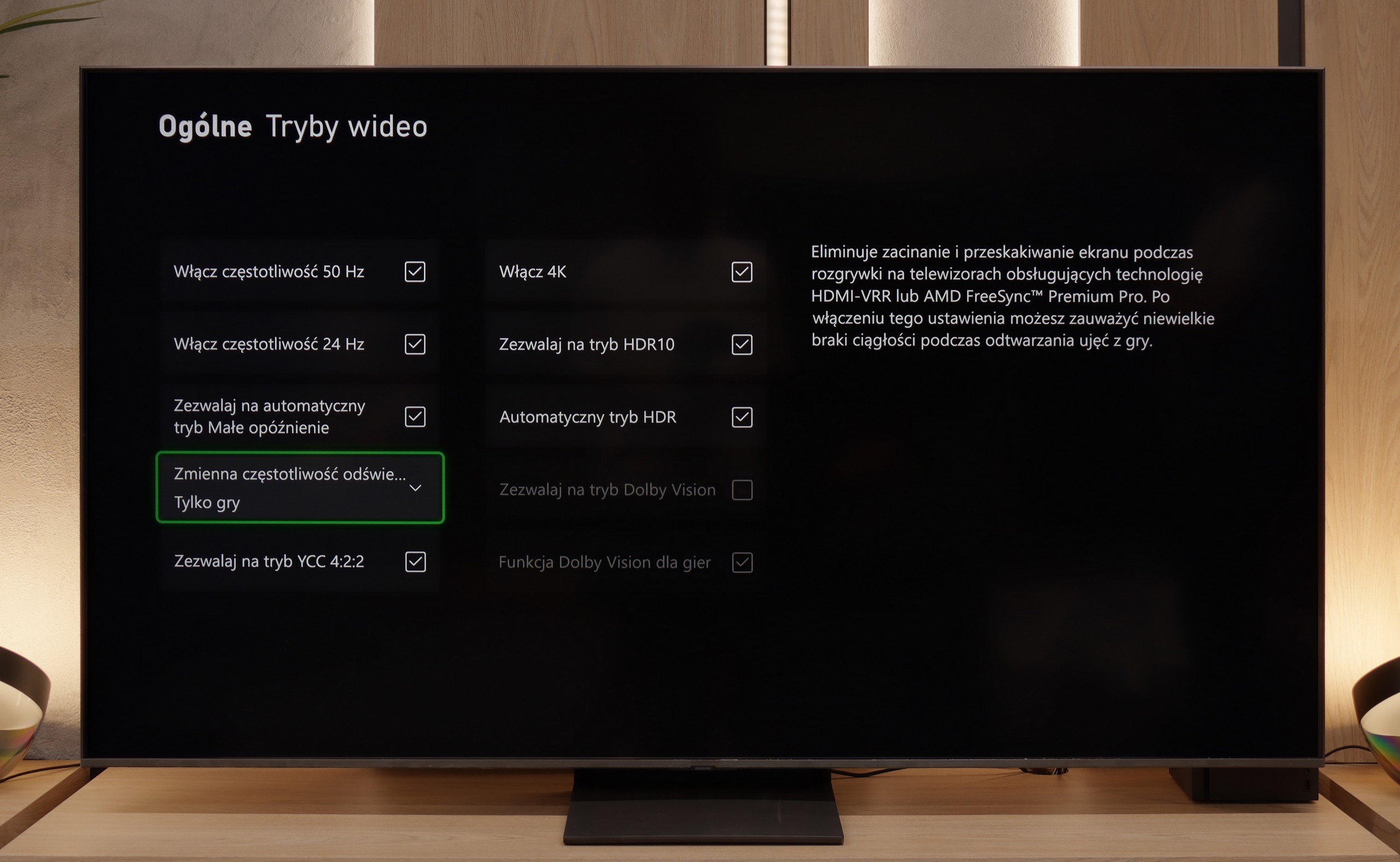

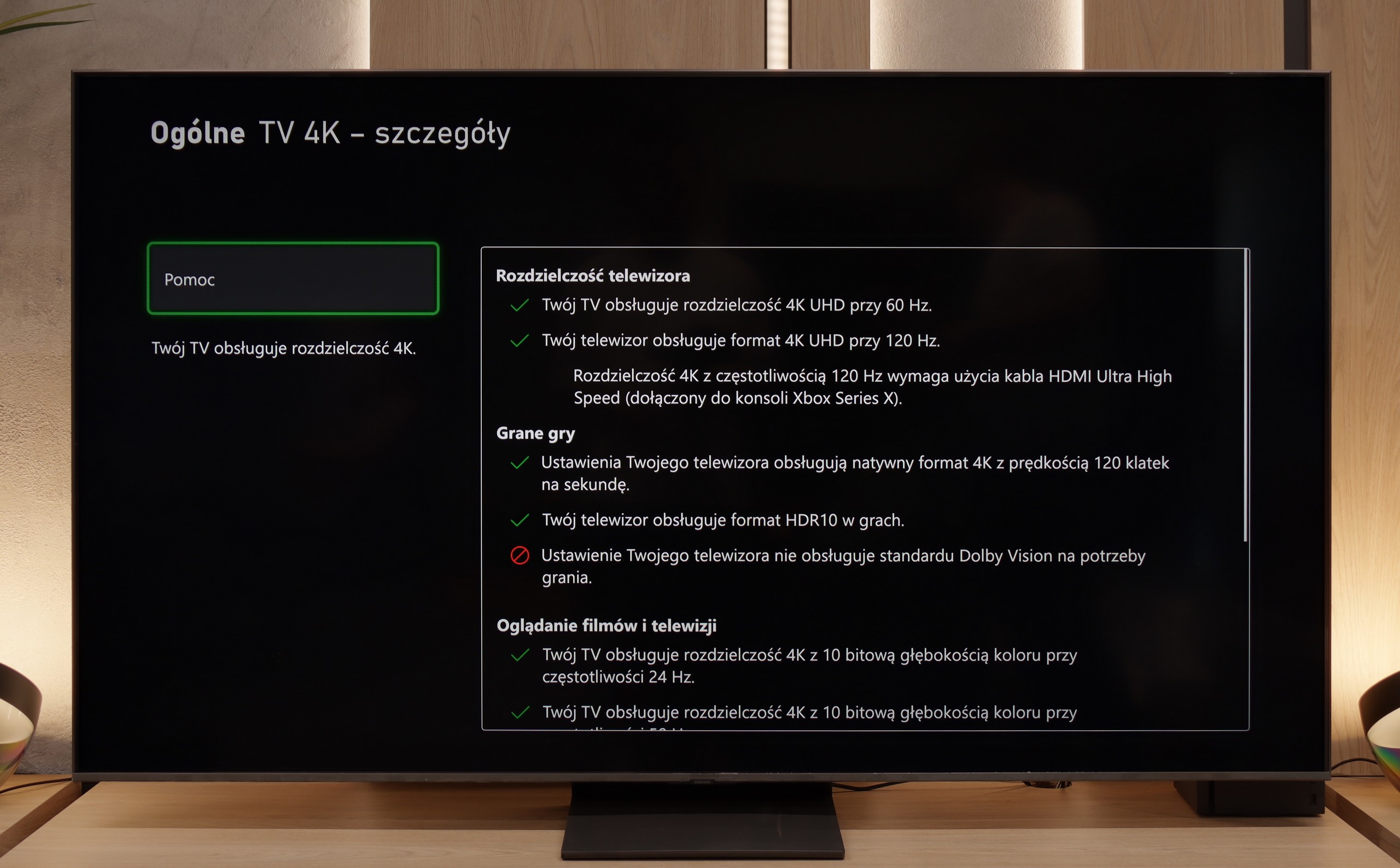

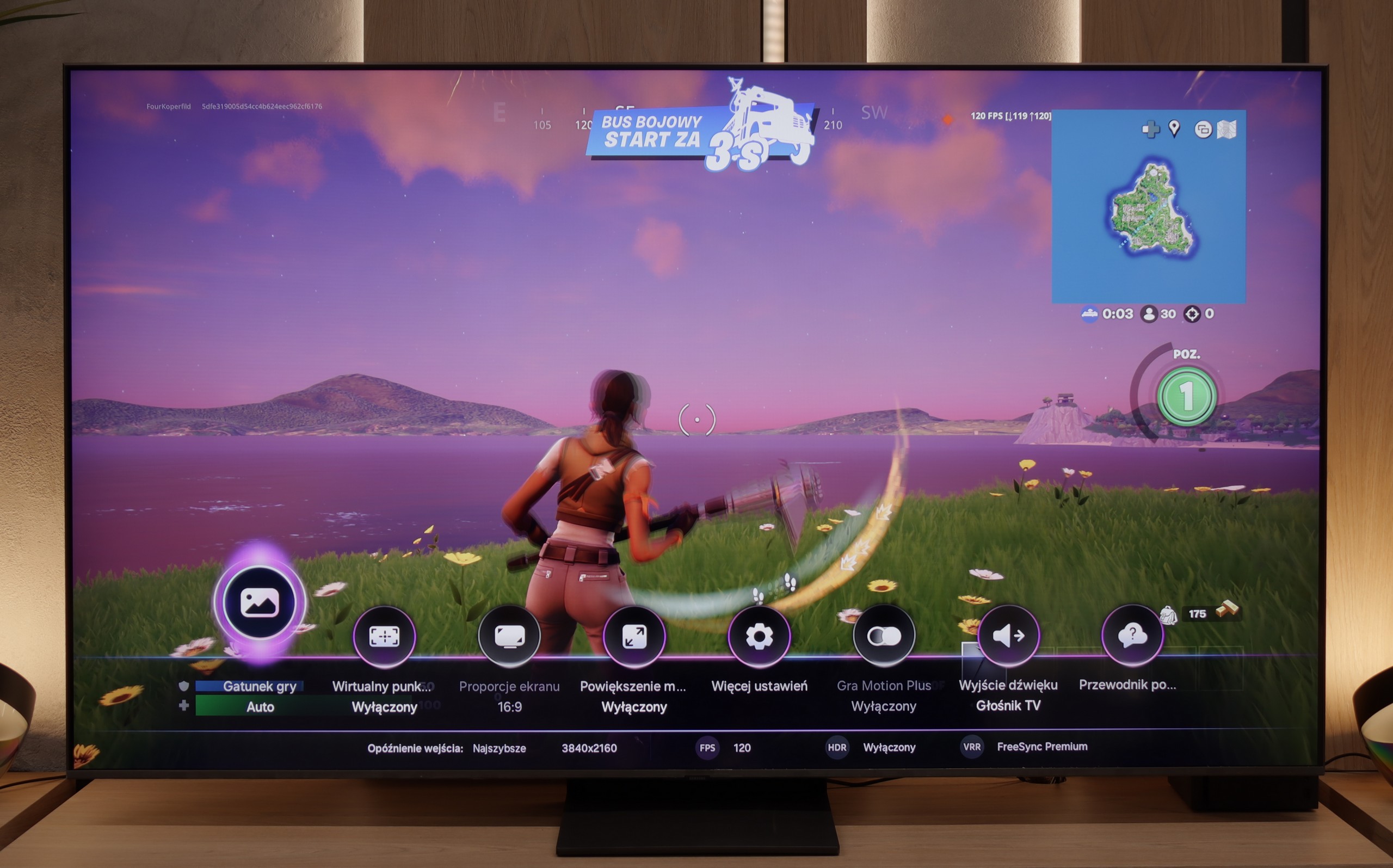

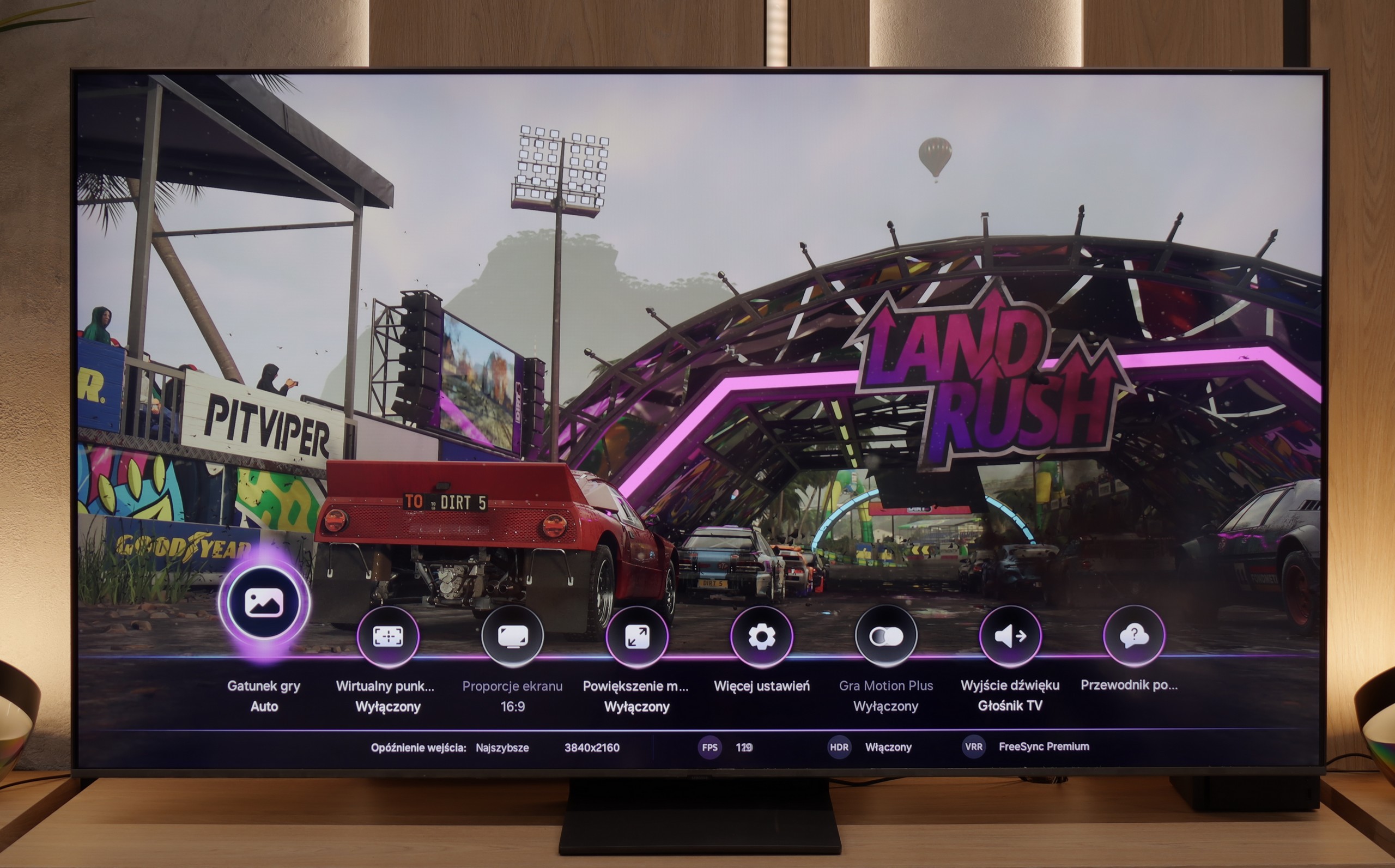
Sony Bravia 7 has significantly improved its capabilities for cooperation with consoles compared to previous models. The TV supports variable refresh rate (VRR), which eliminates screen tearing, and it is compatible with graphics cards, ensuring smooth display. The auto low latency mode (ALLM) effectively reduces input lag, which is crucial in fast-paced games. Dolby Vision with low latency additionally provides impressive HDR effects that look great during gameplay.
Sony Bravia 7 also offers a Game Bar feature that provides quick access to settings and allows monitoring of parameters during gameplay. An interesting option is the ability to enable a virtual crosshair on the screen, which can give a slight advantage in shooting games. However, compared to the Bravia 9 model, the HGIG feature in the Bravia 7 does not perform as well, which may be noticeable for more demanding gamers – especially since the HGIG mode is becoming more popular in the gaming world as the preferred method for reproducing HDR effects.
A downside is the lack of support for 1440p@120 Hz resolution, which could make gaming easier for users with less powerful graphics cards. Additionally, the Sony Bravia 7 is equipped with two HDMI 2.1 ports, one of which is often used to connect an audio system via eARC, limiting the number of available ports for connecting next-generation consoles.
The Samsung QN80F is a TV that delivers on almost every front when it comes to gaming. We have a 144 Hz panel, four fully-fledged HDMI 2.1 ports, support for gamers in the form of variable refresh rate (VRR), automatic low latency mode (ALLM), and even one of the best-designed game bars on the market. The cherry on top is the motion smoother, which – uniquely in the world – works in games without significantly increasing input lag. Sounds like almost the perfect TV for gamers? And indeed, it is almost that.
As usual, Samsung does not support Dolby Vision in games, but that no longer surprises anyone. However, what is much more surprising is that... the HGIG feature has disappeared – that is, the system that allows the console (e.g., PlayStation 5 or Xbox Series X) to precisely match HDR tone mapping to the TV's capabilities. In the latest firmware update for the 2025 models, this option has simply vanished. It looks more like a bug than a deliberate move, but it must be honestly pointed out that as of the day of writing this review, the HGIG feature is simply not available.
And it is precisely because of this one deficiency that the QN80F goes from being almost the perfect gaming TV to a "nearly" perfect device. It's a shame – because everything else indicated that Samsung could set the bar very high once again in this generation.
Input lag
9.7/10
9.8/10
SDR
HDR
Dolby Vision
Sony BRAVIA 7 provides remarkable results in terms of input lag, particularly with 120 Hz materials, where the delay is around 11 ms – this is an excellent result that will satisfy even the most demanding players. The Dolby Vision mode also deserves recognition, which is typically associated with higher input lag, but here it works really well, providing a comfortable gaming experience. However, we deducted 0.3 points for results with values above 20 ms for 60 Hz content, although we believe that for most users, this difference remains more of a placebo effect.
QN80F does not disappoint when it comes to response time. The input lag for 120 Hz content drops below 10 ms, which can be considered an almost ideal result – it’s hard to expect more in this class of TVs. Gaming is smooth, responsive, and free from delays that could irritate even the most sensitive players. For 60 Hz materials, the lag is higher, around 19 ms, but this is a completely natural phenomenon and still falls within comfortable limits.
Compatibility with PC
7.6/10
8.8/10

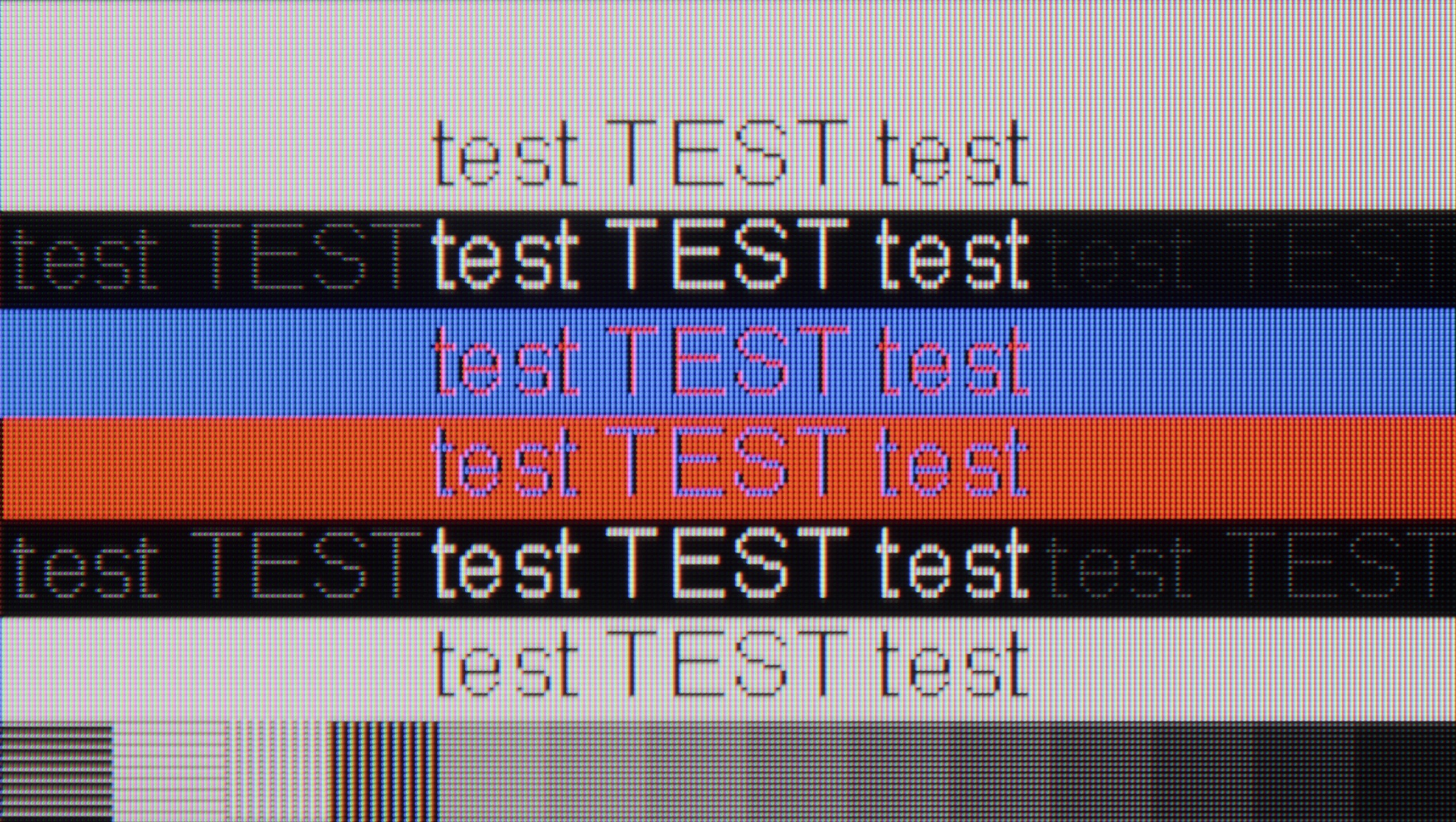
Playing on the QN80F with a connected computer is pure pleasure. The TV works seamlessly with NVIDIA graphics cards (thanks to G-Sync support) and AMD (thanks to FreeSync Premium), and the 144 Hz refresh rate only enhances comfort during dynamic gameplay. Everything works right away, without unnecessary fiddling with settings – exactly as it should.
When it comes to work, it is also very good. The readability of fonts is high, and the texts appear sharp and clear. With very thin horizontal lines, one can notice slight imperfections, but really – you have to look closely. Unless, like us, you sometimes enjoy examining the screen with a magnifying glass… then you might spot something 😉.
Viewing angles
3.4/10
3.1/10
The Sony BRAVIA 7 TV has poor viewing angles, which is typical for VA panels. The picture quickly loses quality when viewed at a larger angle – colors fade, and contrast decreases. Considering the price of the device, it's a pity that a coating wasn't used to expand the viewing angles, which would certainly improve the viewing comfort from different places in the room.
QN80F, like most TVs with VA panels, does not impress in terms of viewing angles. It is enough to lean slightly to the side to notice a significant drop in brightness and lost color saturation. The image loses its "depth" and "vividness," and darker scenes may appear slightly washed out. However, this is a typical characteristic of VA panels, which in return offer significantly better native contrast than IPS panels. In short: something for something. If you are sitting directly in front of the screen – there will be no problem. But when watching together in a larger group, it is worth keeping this in mind.
TV efficiency during daytime
8.4/10
6.6/10

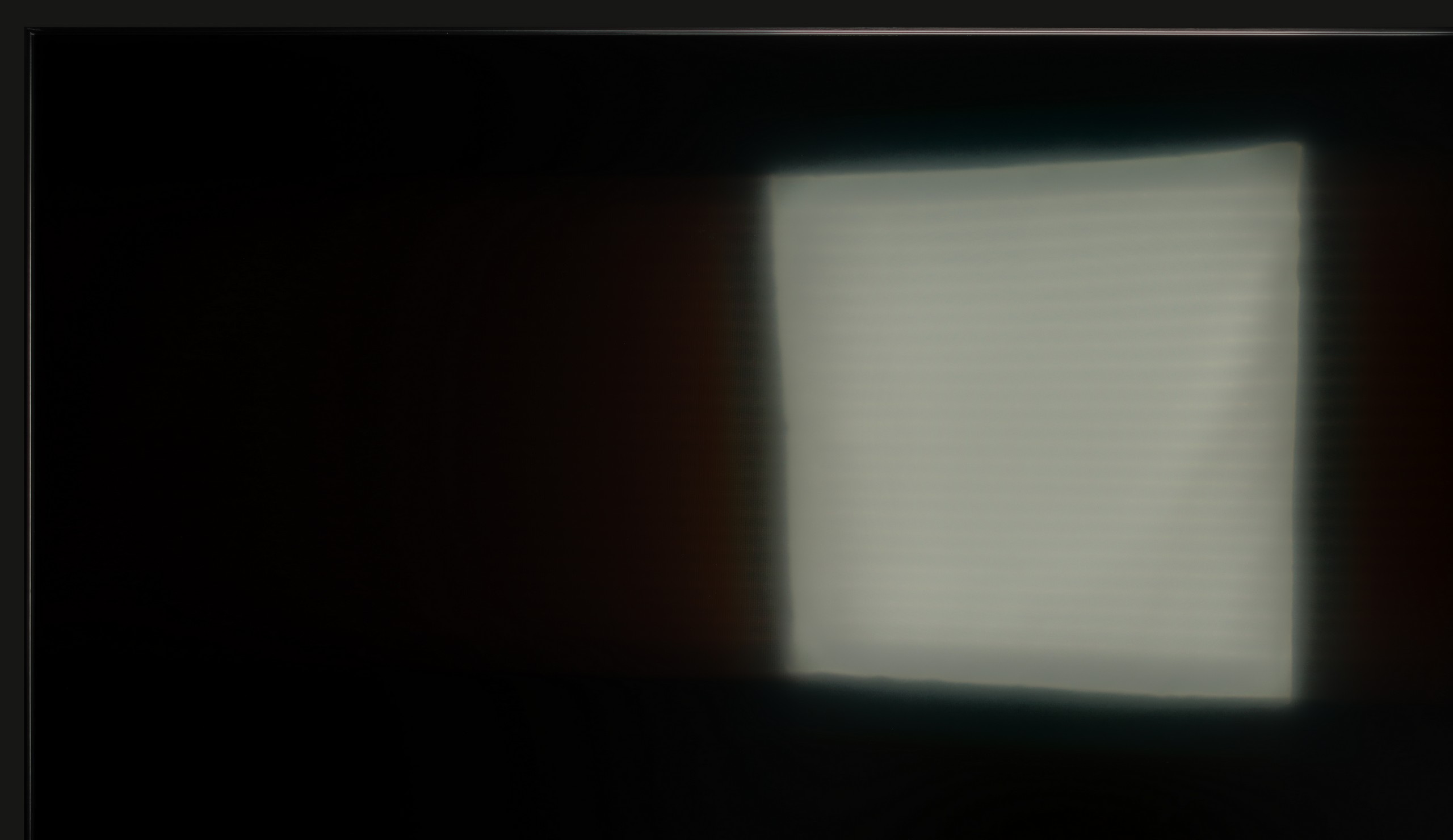

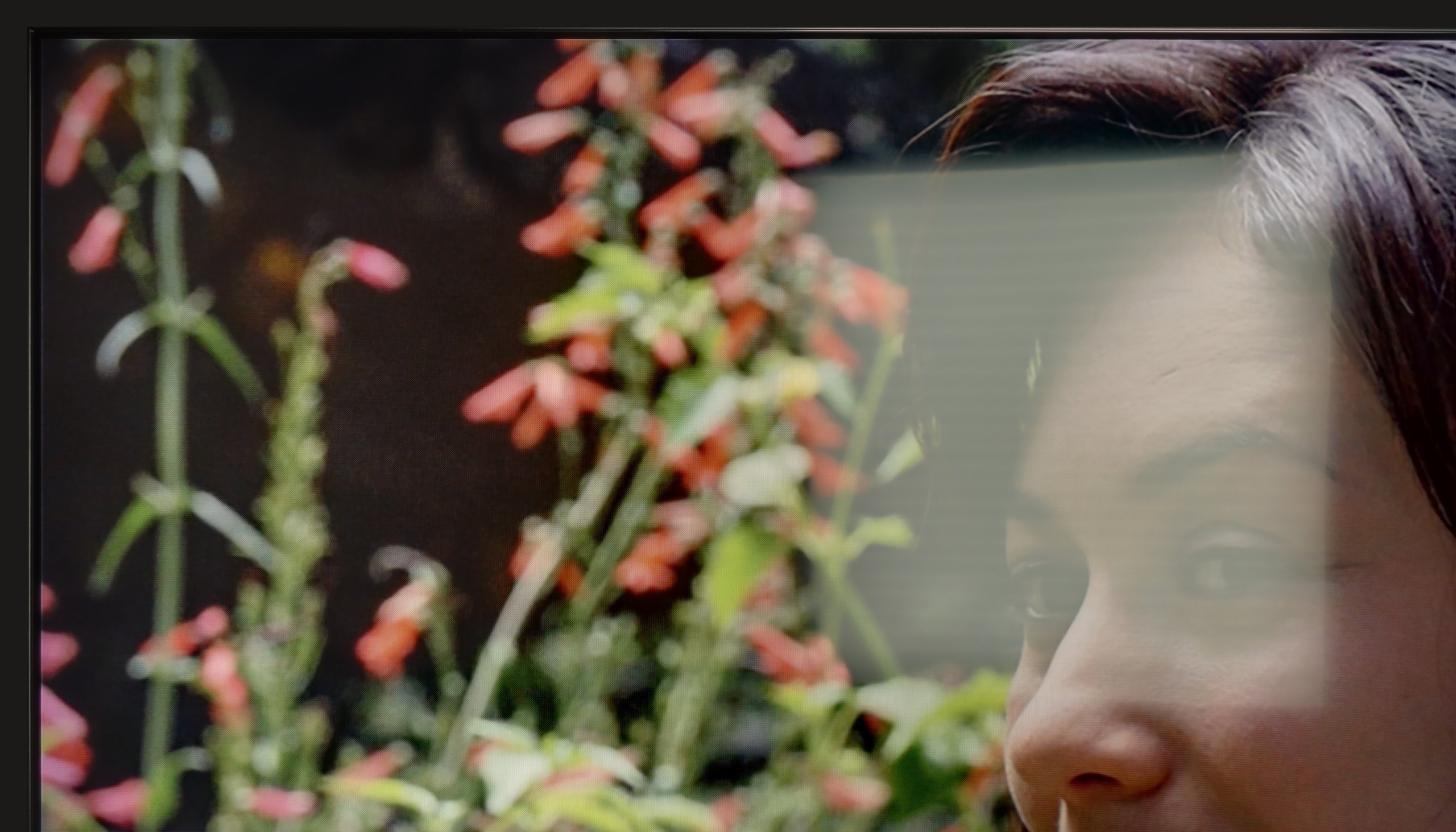
Matrix brightness
Average luminance SDR
SAMSUNG QN80F: 543 cd/m2
Sony Bravia 7 (XR70): 1014 cd/m2
BRAVIA 7 performs excellently when viewed in bright surroundings. The satin finish effectively suppresses reflections, while simultaneously minimal blurring of elements to the sides, resulting in very good visibility during the day. A brightness level of 1000 cd/m² in SDR mode is astonishing and ensures that the image remains clear even in well-lit rooms.
QN80F is really a bright TV. The average brightness in SDR materials is around 550 nits, regardless of the scene, which practically means that you can comfortably watch content even in a well-lit room – and you don’t have to close the curtains every time we turn on a movie. The new satin coating of the panel is also a plus, as it handles reflections much better compared to last year's QN80D. Glare is less bothersome, and the screen maintains readability in various lighting conditions. It's hard to find fault with anything here – the QN80F simply performs great during the day.
Details about the matrix
Subpixel Structure:

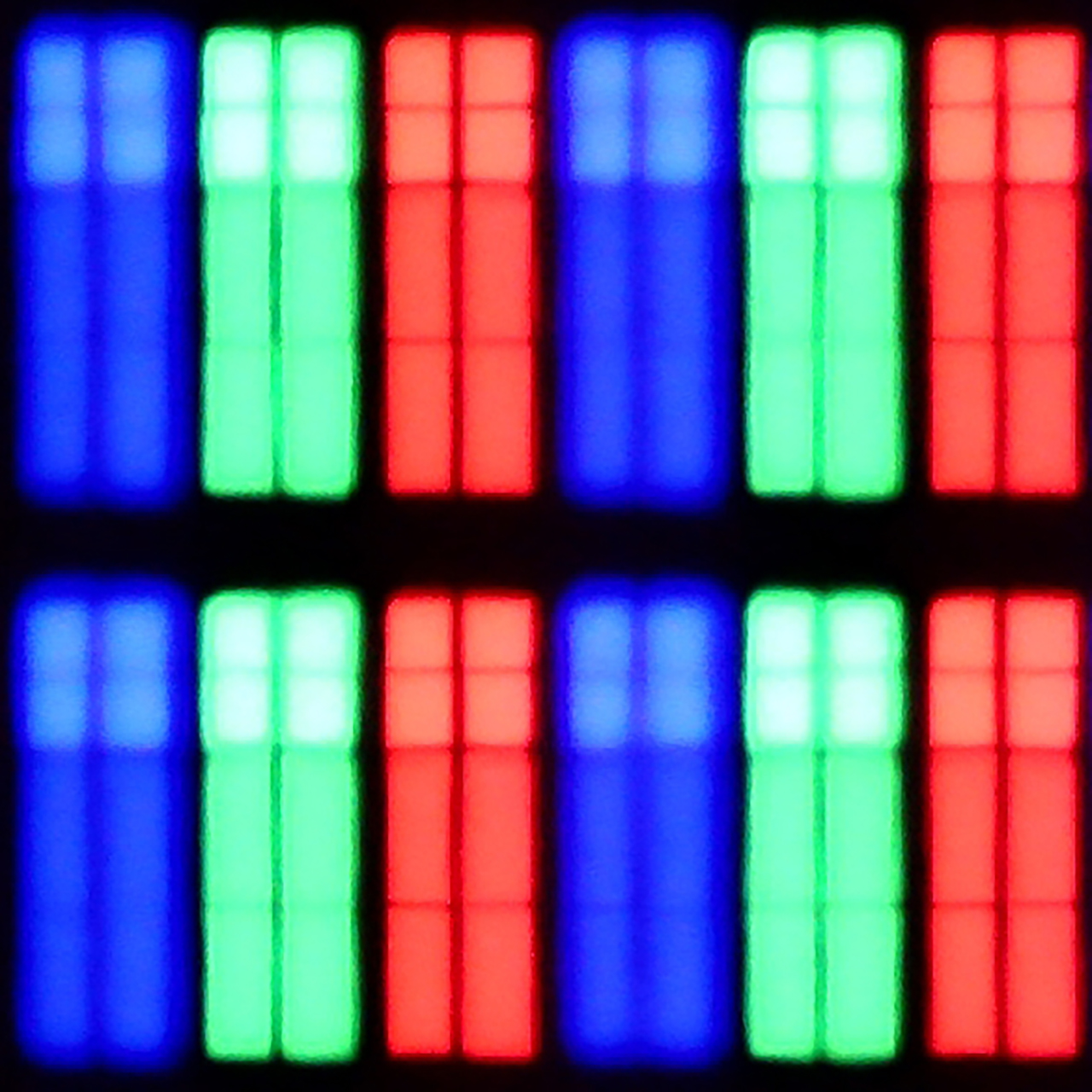
Panel uniformity and thermal imaging:

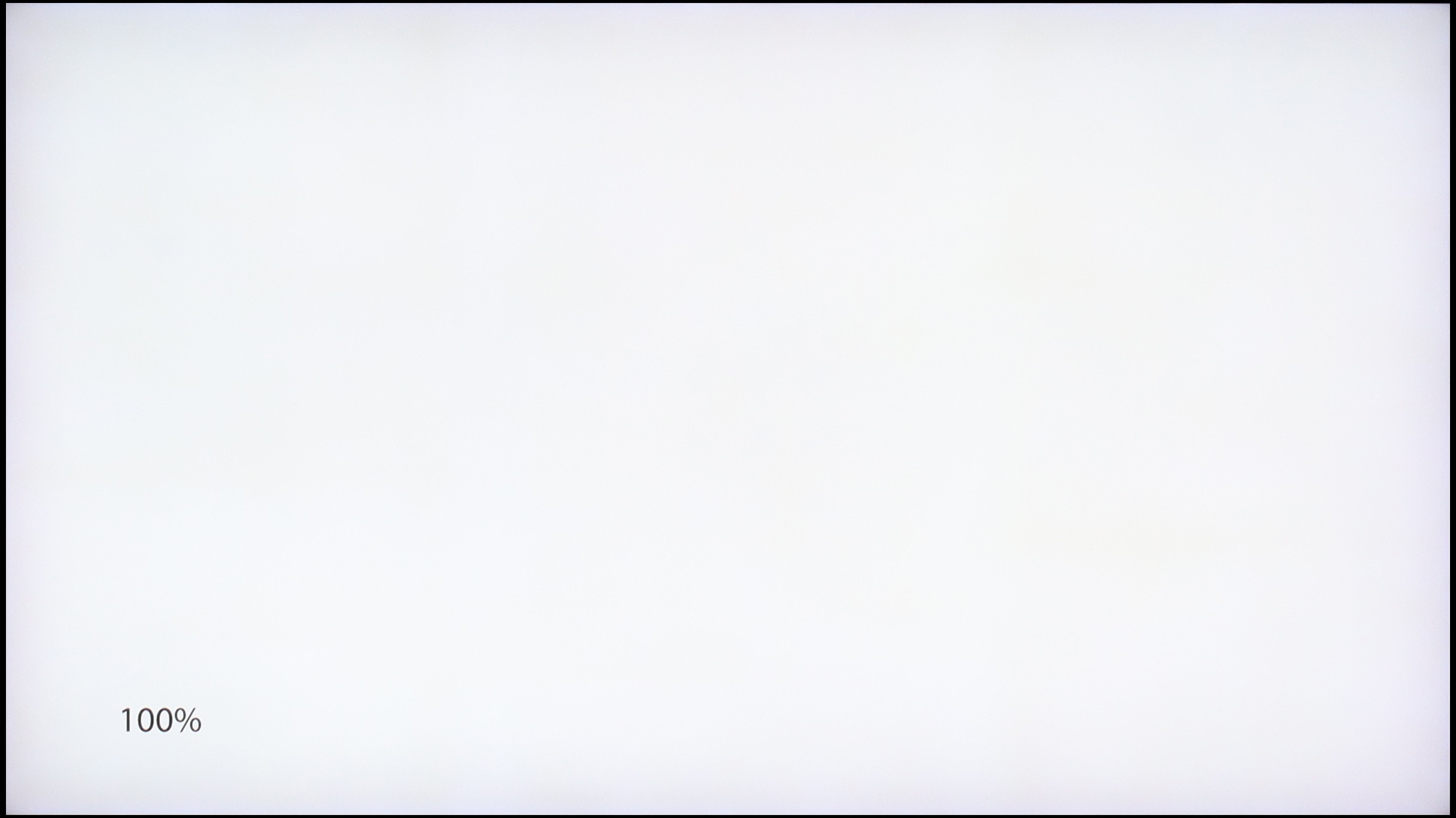
Sony Bravia 7 (XR70)
SAMSUNG QN80F
TV features
8.8/10
7.7/10
- HDMI inputs2 x HDMI 2.0, 2 x HDMI 2.1 48Gbps0 x HDMI 2.0, 4 x HDMI 2.1 48Gbps
- OutputsToslink (Optical audio), eARC (HDMI), ARC (HDMI)Toslink (Optical audio), eARC (HDMI), ARC (HDMI)
- Network InterfacesWi-Fi 2.4GHz, Wi-Fi 5GHz, Ethernet (LAN) 100MbpsWi-Fi 2.4GHz, Wi-Fi 5GHz, Ethernet (LAN) 100Mbps
- TV receptionDVB-T, DVB-T2, DVB-S, DVB-S2, DVB-CDVB-T, DVB-T2, DVB-S, DVB-S2, DVB-C
Classic features:
- Recording to USB (terrestrial TV)
- Recording programming
- Picture in Picture (PiP)
- RF remote control (no need to aim at the screen)
- Backlit remote control
- Teletext
- Audio only mode
- Bluetooth headphones support
- Simultaneous Bluetooth headphones & TV audio
Smart features:
- AirPlay
- Screen mirroring (Windows Miracast)
- Voice search
- Voice search in native language
- Ability to connect a keyboard and mouse


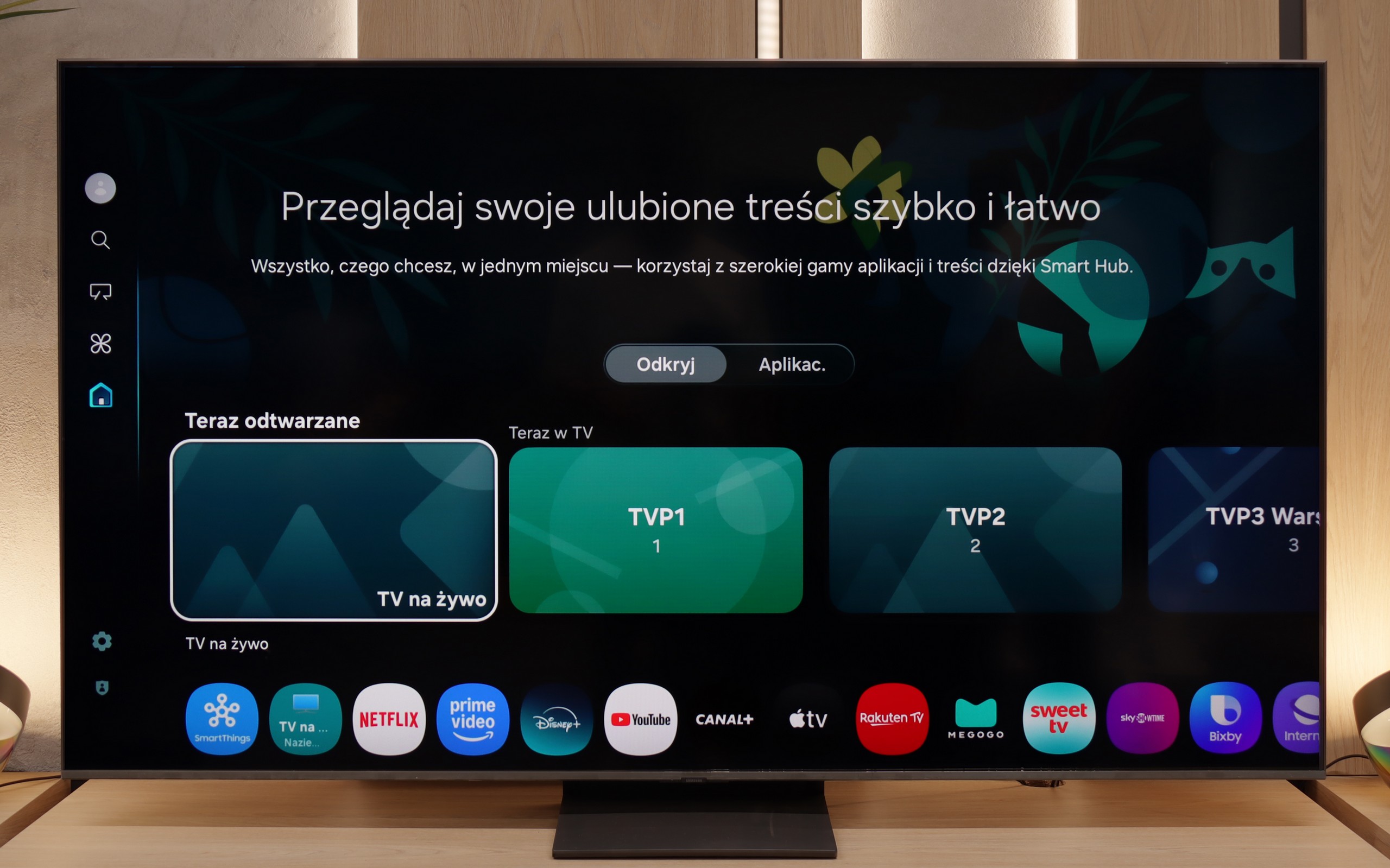
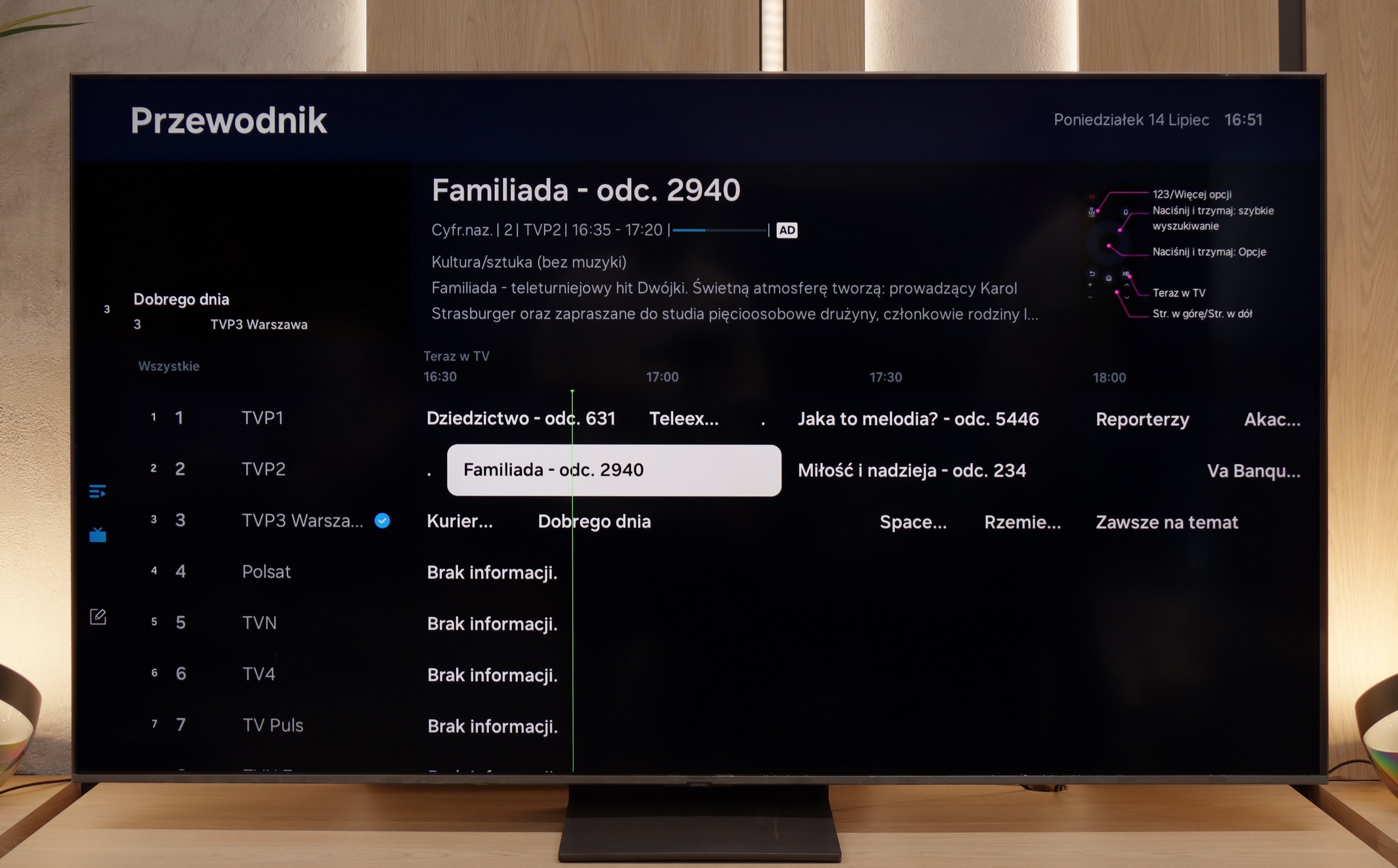
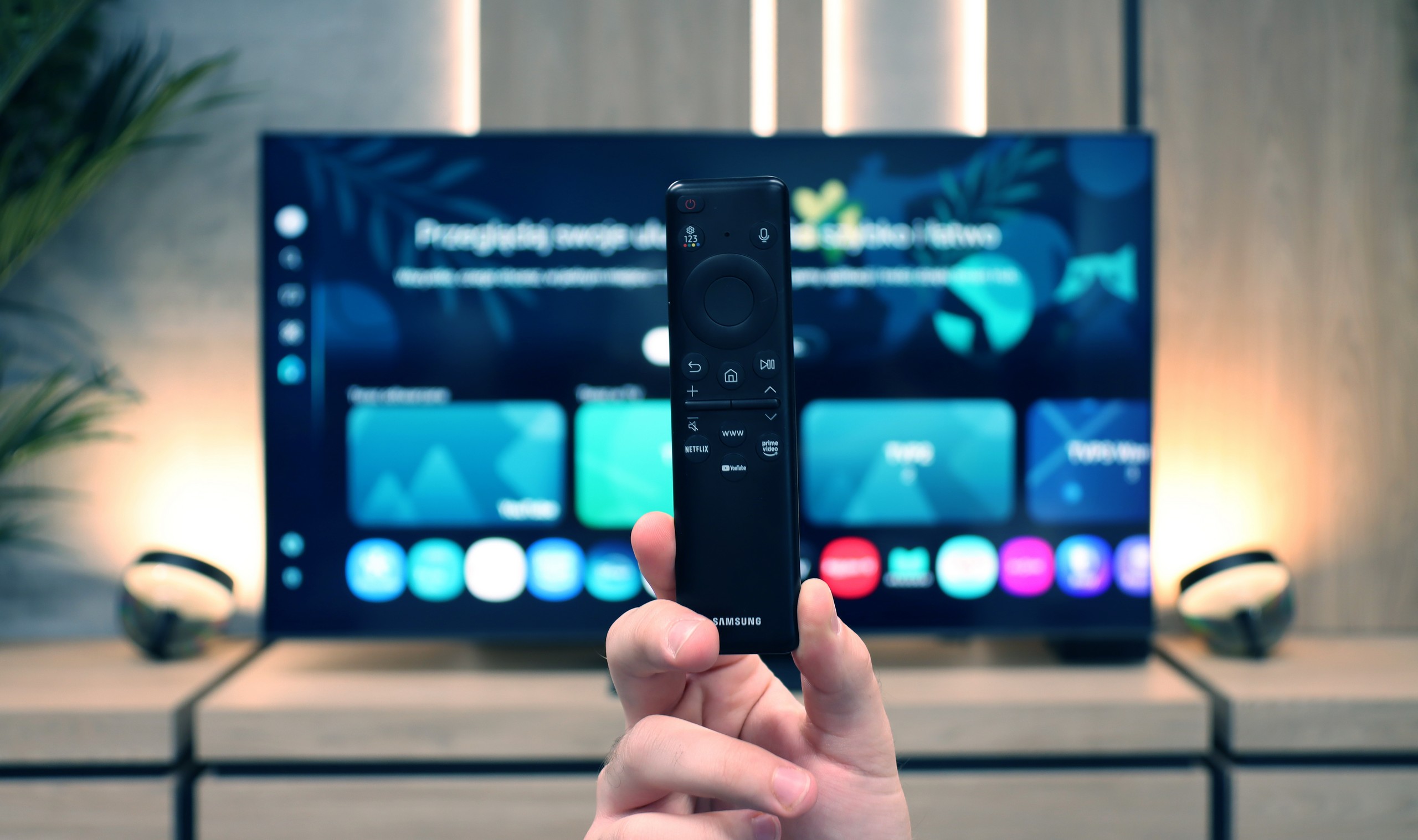
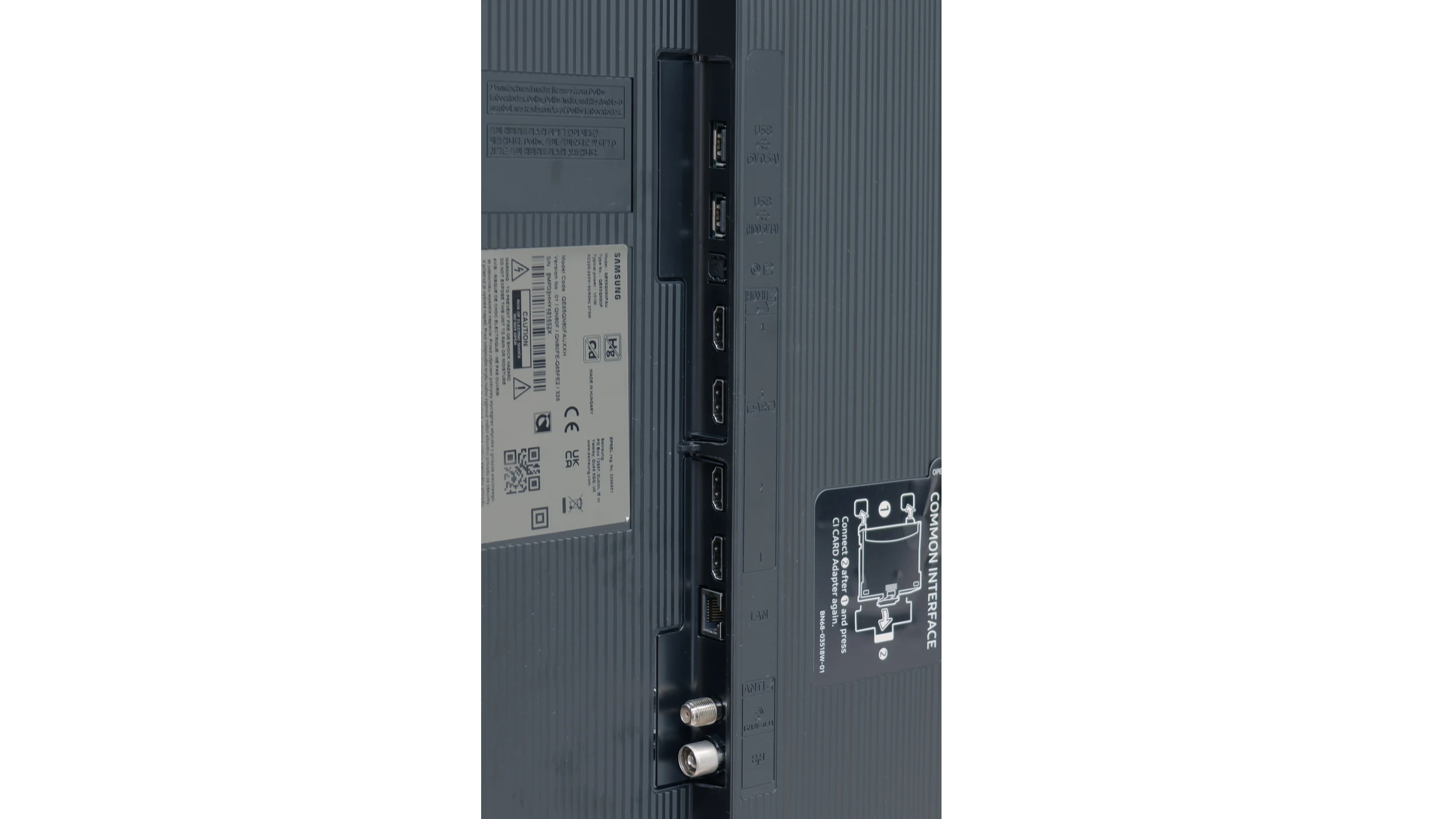
Sony Bravia 7 operates on the Google TV system, which offers an intuitive and fast interface, providing easy access to a multitude of applications. Google Assistant supports the Polish language, making television usage even more convenient and personalized. The interface is clear, and access to functions and applications is quick and hassle-free. It's worth mentioning the remote, which is charged via a USB-C port. Additionally, the remote is backlit, which greatly facilitates its use at night.
Sony Bravia 7 offers a wide range of capabilities that will satisfy most users. The ability to record programs and easily connect devices via Bluetooth are significant advantages. Unfortunately, it lacks the Picture-in-Picture (PiP) feature, which could be useful for watching two sources of video simultaneously.
XR70 stands out with its practical and elegant design. The television is equipped with a 4-position base that allows for adaptation to various spaces and settings – this is particularly useful when flexibility in interior design is desired. Additionally, the slim aluminum frame gives the device a modern and stylish appearance. Although it is not as sleek as some competing Korean models, it still looks very attractive and sturdy.
SmartTV QN80F: Tizen
When it comes to smart features, the QN80F has nothing to be ashamed of. On the contrary – Tizen is one of the richest operating systems in terms of functionality. We have voice search, support for AirPlay, Miracast, and all the major streaming platforms at our fingertips. But Samsung's true advantage reveals itself in the smart home – SmartThings. Here, you can not only synchronize light bulbs and vacuum robots but also integrate devices from other manufacturers, thanks to support for the Matter standard. Suddenly, it turns out that the QN80F can serve as a home command center. There is just one "but" – Tizen is a closed system, so we might not find a few lesser-known apps. However, in practice, it still has everything that 99% of users need.
Classic TV features:
When it comes to classic features, it's just as good – well, almost. The QN80F supports picture-in-picture, a rarely seen but still useful PiP feature. We can easily find EPG, the old good teletext (yes, it works!), and the ability to connect external devices via Bluetooth – whether it's headphones or a soundbar. Unfortunately, there is no option to record to USB from the built-in tuners. That's a minor drawback, especially since the competition at a similar price point is increasingly offering this feature. It may not be a must-have function, but since everything else works so well, it's a pity that it missed that final touch.
Playing files from USB
8.6/10
9/10
Supported photo formats:
Maximum photo resolution:

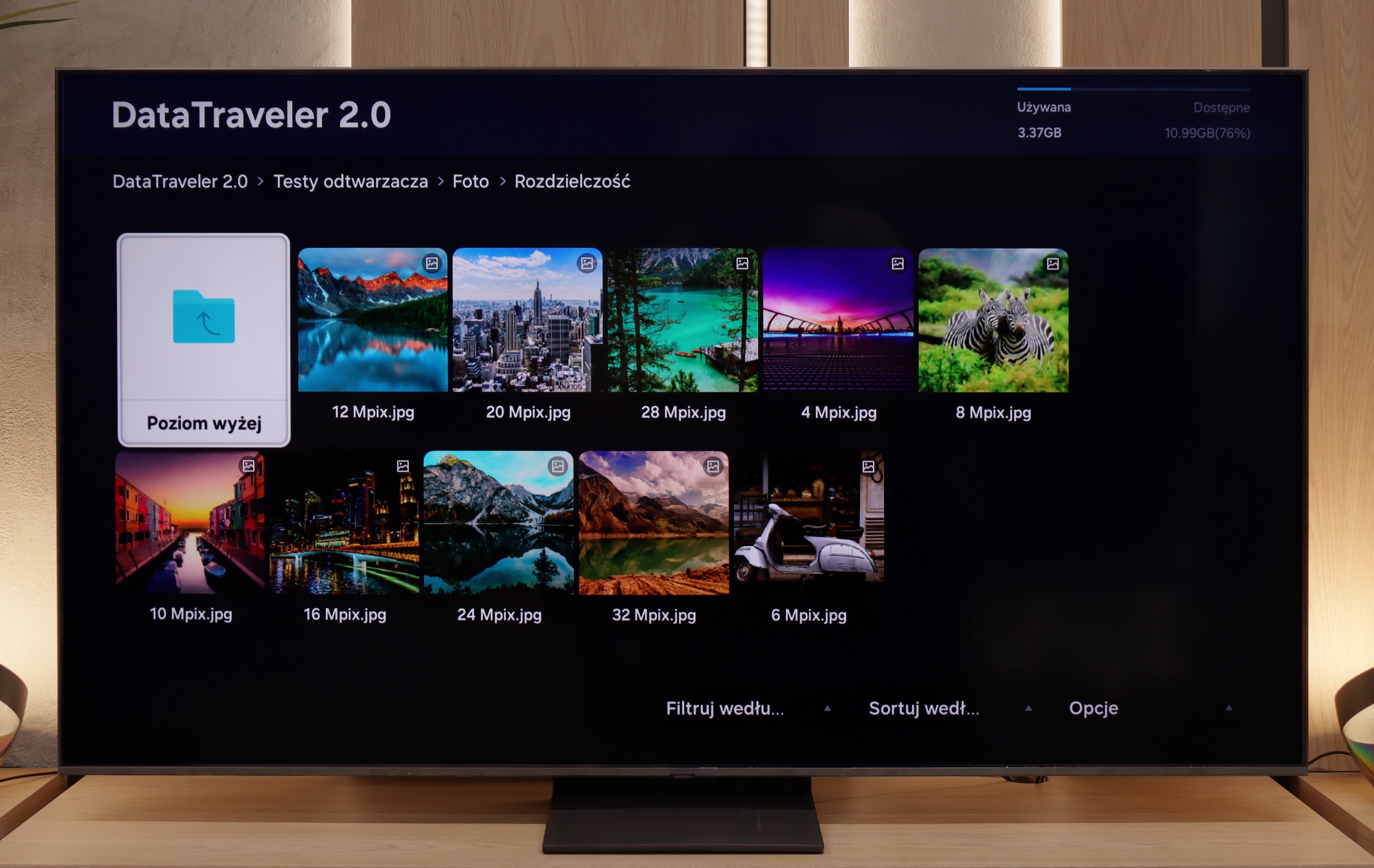
The built-in player handles most popular video and audio formats, allowing you to enjoy a wide range of content without any issues. Although there are minor shortcomings when playing photos, the Google TV system makes it easy to install other applications that effectively solve this problem and expand the multimedia capabilities of the television.
The built-in media player in the QN80F handles most popular video formats – from classic MP4 to somewhat more demanding containers. It's not a powerhouse like VLC, but it's sufficient for home use. The situation is worse when it comes to photos – here, unfortunately, it's rather modest. The support is mainly limited to the JPG format, but hey, at least that's the most important one 👌. During our tests, there was also a minor issue with subtitles. The QN80F could only handle the simple text format .txt – other, more advanced formats (like .srt or .sub) were unfortunately not recognized.
Apps
9.6/10
8.7/10














































Sound
7.8/10
6.7/10
- Maximum volume-87dB
- Dolby Digital Plus 7.1
- Dolby True HD 7.1
- Dolby Atmos in Dolby Digital Plus (JOC)
- Dolby Atmos in Dolby True HD
- DTS:X in DTS-HD MA
- DTS-HD Master Audio
Although the Sony Bravia 7 television is equipped with only a 2-channel speaker system (2.0), there are two speakers for each channel with a total power of 40 W. This provides really good sound quality, and the bass is noticeable, making watching movies and listening to music more enjoyable.
For a TV of this class, the QN80F sounds surprisingly good. It supports Dolby Atmos format, which is worth noting, as this is still not a given in many models in this range. Unlike the thinner QN70F, you can even feel a slight bass here – all thanks to the thicker casing, which simply gives more room for the sound to "breathe." For everyday viewing and series, it's more than enough, and with the right settings, you can even consider listening to music without the need to connect external equipment. However – as is often the case with Samsung, there is unfortunately a lack of support for DTS:X format, so if we are using audio devices that support this format, we will first have to connect them to the receiver and only then to the TV.
Acoustic Measurements
No acoustic data
87dBC (Max)
75dBC


